#sir no longer present in the narrative
Explore tagged Tumblr posts
Text
I'm obsessed with characters we only hear about second or third hand, especially when those accounts are conflicting. No, you don't get to see them, but here's a warped mirror of what other people thought they were. Enjoy your contemplation of how being known is an act of translation and communicates only aspects of the self.
#examples like anastasia and alecto and even gideon the first in tlt#natsume reiko from natsume yuujinchou#agnes in the magnus archives#sir no longer present in the narrative#no longer able to speak for themselves#persisting only as part of the mythology of others#it's compelling to me
11K notes
·
View notes
Text
unable to stop dwelling on the discworld trouser leg of time where, in the penultimate fight scene in Nightwatch, Carcer manages to kill teenage Sam Vimes.
Which means that the future that Duke Vimes came from can no longer exist, which means he can’t go home. Meanwhile you’ve got a bunch of history monks with stored up temporal energy, a prepared space outside of time, and the need to do some desperate damage control before the Auditors get involved. Death shows up, reality is unweaving, Sam is reading Carcer his discworld miranda rights because what else is he supposed to do.
and finally, with little other option, the monks de-age Sam so he fits the time period and send him back out into the fray.
(they didn't call it deageing of course. His memory is hazy, splintered during that terrible in between moment, They....took the time out of him? Sanded away the edges of his self for a terrible, workable fit? It...wasn't a good feeling.)
Just—damn. Sam Vimes having to live his whole crapsack life over again, but this time as his disillusioned-reillusioned, unwillingly-character-developed, noir-epic, Duke of Ankh, Commander Sir Samuel Vimes self.
Younger (Older? He's never felt so Old, His steps so Childlike, reality twisting in his gut like one of Dibbler's pies) Sam Vimes walking around in a haze after the revolution. Desperate to go home, knowing he can’t. Wanting to drink. Knowing he can’t.
The whole precinct feels pity, he really took Keel’s death hard, hardly speaks except to do his job. Eventually he has to grit his teeth and start being present, because what else is there to do?
Resists the urge to drink until Colon takes the whole watch out to celebrate because -he’s going to be a father!
Come on Sammy, one drink won’t kill you— and after the first drink he’s cracking jokes and after the second hes smiling and after the third hes honestly the life of the party and sometime after that he’s crying about how he was going to be a father and my wife would be ashamed if she saw me drinking like this and—
Oh shit, Did anyone else know he had a wife?? A PREGNANT wife??? What—aren’t you like 12—no you're 17 now aren't you but when did—
You guys n’ver met ’er—oh gods none if you ev’n know ‘er, is jus’ me...
What—when did you lose—
I lost her the same damn day I los’ ev’rythin else, whadya think...bleeding Carcer...the fuckin revolution...
So! That! Sam only vaguely remembers the night, but rumors travel faster than light on the disc, so by the next day the whole damn city knows about poor Sam brung low by the loss of his poor, tragic, pregnant wife, so young to be a widower, and the Seamstresses nod because they already knew, don’t ask them how, somethings you just have to know in that trade.
And his mother—I don’t know, sue me, I’m a time travel fiend but there’s something deeply intriguing about a man meeting his dead parent, who is somewhat younger than him, and stepping into the old relationship like a badly fitting thing that's supposed to fit well. She would know, right? How would she deal with her son’s impossible grief? Maybe she wouldn’t know—he spent most of the time out of the house, running with different street gangs, maybe he avoids her until she dies and lives with the guilt twice over. God, we don’t even know her name. There’s just so much narrative and emotional potential that I don’t even know where to start.
When he’s on duty, which is most time - it’s agonizing because at first he remembers cases, saves lives that would have been lost. But the more time passes, the hazier his memory because in the original timeline he was becoming an alcoholic. Fuck! A kid dies and he could have saved her if he hadn’t been such a drunk, if he had just remembered where the asshole lived, but it’s all a haze, and he wants to drown out his guilt, but that’s what caused this in the first place.
Good young Sammy, who spends his rare off-time in dusty libraries (and yes, the irony that he’s apparently Carrot now is not lost on him) reading gods-only-know.
It’s not like he can ask the wizards for help, cutthroat and vicious as they are now in the not-so-distant-past.
Good young Sam, who...talks to the Broken Drum’s pet Bouncer like he’s a real person and not a dumb rock? That’s a bit weird, but he’s a bit of a funny guy.
Good old Sam, who believed the testimony of the dwarf who said the humans were trying to rob him and let the dwarf go??
the PROBLEMS this man would cause, good grief. Can you imagine a moderately progressive middle aged man with some degree of begrudging diversity and equity training that he did, for all his sins, pay attention to, suddenly going back to like, 1990, going back just 30 years, and going...oh damn this is kind of fucked up, no man you can’t say that, holy shit.
Except Sam’s lived through even more rapidly shifting social moroes! There’s no seamstress guild, there’s no women allowed inside the university, there’s no black ribboner’s society. People hunted trolls for their teeth! But Sam can’t just unlearn everything, and he can’t shut up, and he has no real luck and anyway he would absolutely get himself (temporarily) fired.
FUCK. Sam has no idea what to do with that. None. Zero clue. Wanders around in a haze until that dwarf he saved from police brutality finds him and insists on repaying the debt. No, he insists, do you have any idea what debt means to a dwarf?
“Sort-of?” he replies hesitantly, and that honest admission of incomplete knowledge shows a hell of a lot more respect and understanding than any self proclaimed dwarf-expert ever did.
Gets a job as a surface man, hauling rocks into the city. It’s backbreaking work, but, in true Discworld fashion, it’s also one hell of a workout (again the irony of being Carrot is not lost him. he freezes for a minute while hauling a rock cart, when he remembers he's technically Lost Nobility too, in a strict sense, but someone curses at him in the street and he's comfortingly grounded)
And here is where this au slides into a SPECTACULAR romantic comedy, BEAR WITH ME. Because in his time on the Watch he’s already done noir, action adventure, war story, detective who dunnit, psychological horror, but guards guards only allowed him to be a romance protagonist in an extremely limited context.
Give me righteous, twenty-something-looking, can’t-say-he-doesn’t-have-style, young Sam Vimes, not an alcoholic, being fed three square meals a day by his dwarven forced found family, hauling rocks. He is startled to find him bumping his head on a low hanging bar that he doesn’t think used to be there, eventually realizing that he’s an inch or two taller than he remembers. Huh. Guess all that bearhuggers really did stunt his growth.
Still doesn’t get what some of the looks from women he’s getting are about, sure, he’s dirty but so is everyone else. Fine, he took his shirt off, but it’s hot out, there’s far wrinklier than him hauling heavy loads, get a life.
Happens to glance in the Ankh one day when it’s particularly slow and shiny and is startled to realize that he might be turning heads for a different reason. Oh. Right, not that he was ever a heartbreaker, but he did alright for himself... when he was a younger and his face hadn’t been broken so many times. Which...it isn't now.
Is mildly disturbed by the revelation.
Especially once things blow over at the precinct and what with high mortality rates, he ends up with getting hired again. The boys are delighted to have him back, nevermind that he’s an odd one, noone is ever quite in your corner like Vimsey, absence makes the heart fonder, no one else works that hard, and he’s not even competition for promotion. All around great guy, we should set him up with somebody and just, no.
It just keeps getting worse! He’s literate! He’s a feminist! He believes abuse victims! He’s got a tragic backstory! He’s unreasonably good in a fistfight! He’s kind to animals! Word gets around that there’s a good man on the watch and he’s just waiting for a good woman to come snap him up. The widower excuse doesn’t hold people off completely, and for some it’s its own sort-of appeal.
Things REALLY become stressful after he rescues that carriage full of noblewoman.
What’s he supposed to do? Let them get robbed? Or worse? Chasing down and beating up 10 goons is as easy as beating up one, when they’re that stupid, getting separated like that, drunk and distracted, and he knows these streets better than anyone, really it’s nothing. And oh lord he’s Modest too.
I mean, they were genuinely greatful, as genuine as people like that are capable of being, the skill having grown rusty. And then there is something...magnetic about the man. An air of command.
So, soon enough you get Lady Marigold of Marigrave calling on Treckle Road for that gallant young officer who rescued them, she really needs to thank him. And Viscountess Elanor Thitzferal specifically requesting that he guard her at her next soiree. And Baroness Julieta van Shoeholten insisting that he come to her home while her husband’s away, for... manly protection.
Aaaah just zero sympathy from the guys. None. 'It’s become a competition, they’re just trying to see who can get me into bed first, it’s like I’m a piece of meat, you can’t send me sir, the Marquess greeted me in a nightee last time you made me go to—' and 'small gods Vimes are you even listening to yourself, shut the hell up'.
Simultaneous to this, (again this is several years into the timeline) swamp dragon accessories come into style. Which means abandoned swamp dragons scrounging on the street. Vimes takes one back to his apartment, blows his paycheck on dragon medicine, and eventually, heart in his chest, brings it to the Ramkin estate. The sunshine orphanage doesn’t even exist yet and he’s just standing outside the gates like an idiot, what is he thinking. Turns around, but her carriage is pulling up and—
well. they meet. it's cute. he's never felt so young. he's never felt so old, too old for her, too poor—
and certainly her thoughts linger too long on the awkward, kindly, handsome young commoner, but is it any wonder she doesn't quite connect it to the stern, dangerous, sexy young guard the ladies seem to be in some quiet, cuthroat competition over?
i have this gorgeous, absurd scene in my head in which Vimes is strong armed into standing guard at some high society soiree and one of the pushiest ladies insists he dance with here, or, if he prefers, if he's not confident about his skills, he can dance with her in-private at her home and he’s like [grinding teeth, looking for a way out, seeinf one] “I would be honored to dance with you.”
Steps right into some ultra-complex dance with multiple partner swaps (she never thought he'd pick this one, devilishly intimidating to one not strictly trained, and you barely spend anytime with your first partner).
But he does alright. Better than alright, for a common man, sometimes misstepping but his hands and feet always end up where they need to be. Raises several eyebrows part way into the song because he's throuwing in some slightly scandalous, no innovative, extra lifts and twirls that wouldn't become fashionable for another decade or two. Who even is that guy? Some out of towner? No, no he's in a guards uniform...how very strange.
Gets to Sybll and she's used to embarrassment during these dances, she tries to get out of them when she can... but can't always. Men awkwardly skipping the lifts, or worse, trying and failing. But him — oh it's him, the one who helped little Erold, and looked at her like—like—well like she was someone beautiful. And he's doing it again, and he's strong and there's a quiet moment where she's in the air, they lock eyes, and the rest of the room melts away.
And then the partners change again, the moment ended.
Just...living throught it all again. To the left, a dance he almost knows the steps to, throwing others off balance with erratic moves , honest mistakes, and delibrate stepping on toes. Improvising. Ruining. Improving. Getting far, far too much attention.
Hes almost excited when the first assassains start coming after him. It's like a hobby.
Everyone tells him he should get a hobby.
Interactions with young vetinari...I don't have the energy to write it all down, the slow circling in on each other, both burning with the need to fix the city, save it, their city.
needless to say he ends up fired again, life under real threat after offending some high lord.
Conveniently enough he has an employment opportunity- bodyguard to fucking Vetinari on his 'grand sneer.' The bastard knows vimes isn't what he seems, though sam is pretty sure that he doesnt know the exacts.
Vetinari hypothesis:(the ghost of keel? Keels son, with some hereditary curse? Or a larger spirit of justice possessing a string of unrelated souls? He knows things he shouldn't- mind reader? Fortune teller? Havelock once arranged for a wizard to bump into him on the street, the magical fool gave an odd double look and then muttered something about destiny looping in on itself giving him a headache. Destiny? Lost noble? And hes far too familiar with sybyl, one of the few bearable noblewomen in this city. And his thoughts on guilds, when havelock can trip him into speaking... Most of all, if hes reading him at all correctly (for all the mystery hes not that hard to read, unless thats a very clever cover) then it seems that behind those dark haunted eyes is Respect. Loyalty. For vetinari. What an interesting man. A puzzling asset. An intriguing threat. )
Did I mention the timeline is changing, healing slowly around the place where it was torn? Healing enough around scars to perhaps get some flexibility back, with some painful stretches and...massaging of said scar tissue?
And hes heading to unresting uberwald, a place where a werewolf pack still hunts humans and, truely unrelated but perhaps equally exhausting, an eldritch spirit of vengeance just might be looking to stretch its legs in a hapless vessel?
Opening drabble Vimes Vetinari Meta (Unwell) Scene from the Uberwald Grand Sneer
#discworld#sam vimes#discworld au#nightwatch au#i literally drafted this post in December 2021#and i know it was living in my head for years already at that point#i have more somewhere aging like cheese in the back of my mind#discworld fanfic#night watch#Let this be free from my mind#Perhaps someone else will write it#BE FREE ANCIENT AU OF MY SOUL#For all my obsession with discworld I have but this one (1) AU though it tears at me like the seam of a pair of pants#The songs I have permanently associated with this au are slightly bonkers by the way#My au#Seriously there's like two full novels worth of content up here. Sybyll running away from home and living as a commoner#To mirror Sam joining upper class in original timeline you see?#Some early discworld murder Wizard nonsense when they try to poke at the temporal anomaly and the universe goes brrrr#Eventually catching up with color of Magic city burning bs and vimes is mad as fuck#Weird year that never was protecting people during sourcery#And when we start catching up with where he left#Oh ho ho you can't to forward to something that doesn't exist but maybe you can go sideways to a place that's got a tear in it#A sam vimes shaped tear#And his pregnant wife from 30 years ago in the other trouser leg#AND that's not even mentioning how carcers trial got taken to a...higher court
459 notes
·
View notes
Text
Lissa as Soren's Shadow Self
Intro
So sometime after S5 I talked about how most of the main cast had a 'shadow self' walking around—another character within the narrative that represents a bad end or dangerous/alternative path they could walk. Callum has Viren, for example, but also Finnegrin (both men are trapped in 5x08, both seek dark magic to free themselves from their perceived captors, albeit for different reasons, etc). Ezran was going to have Harrow's anger and the Orphan Queen; Rayla has Runaan's bow/duty as an assassin, and Kim'Dael, etc.
Someone who has already had a tragedy of some kind befall them versus their present day counterpart who will be twisted into repeating their choices while also, occasionally or ultimately, making better ones.
At the time, it felt like neither Soren nor Terry really had one. Claudia could suffice for both of them, to an extent; Claudia was very much repeating the cycle of use and dark magic and violence of "Viren to Claudia" to "Claudia to Terry and Sir Sparklepuff," with Terry fitting into the spot of who Claudia had been in the past: goofy, loving, non-corrupted. This is, admittedly, made more textual in S7, with Terry able to see the map whereas Claudia no longer can, contrasted parallels of the bird in 2x09 being not the first time Claudia uses someone (that'd be Callum in 2x02/2x03) but the first time she uses someone to get dark magic ingredients and earns her first white streak... vs the birds in 7x04 being what makes Terry realize he is being used, and one of the big things (symbolically) that represents and reinforces his decision to leave.
Soren also had parallels to his sister as a foil—both Viren's children, both manipulated by him, but Soren left whereas Claudia stayed—and to his father, as of arc 2. Both had their physical situations fixed without their input (Claudia healing Soren's paralysis and resurrecting Viren), leaving Claudia confused and frustrated when the situations emotionally changed them. Just as Soren had realized he was on the wrong side in arc 1, Viren was steadily learning that too, although it hadn't quite come to fruition yet.
Terry too, likewise, has very strong textual parallels to Lissa thanks to season 7. Like Lissa, he is used by his partner ("young Terrestrius has what we need" / "I needed her tears. Something so simple and easy") and leaves. In many ways, his dialogue with Claudia directly clarifies / invites insight onto Lissa's feelings ("Because you didn't trust me to make my own choice" -> "she shook her head. She said no"). Claudia most notably even frames their rationale the same way.
I think she had to leave for herself, to be happy somehow. (2x09) But he had to leave. For himself. (7x04)
Within the narrative and Soren's own family dynamic, however, Lissa being Soren's shadow self I think is still the primary usage of the device for each of them, even over Terry and Lissa.
And here's why.
The Semi Obvious
There's the obvious parallels, of course. Soren and Lissa are both blond; they both leave the family, and leave the family specifically with mind to the fact they no longer feel safe.
SOREN: I don't want to do this. (3x07)
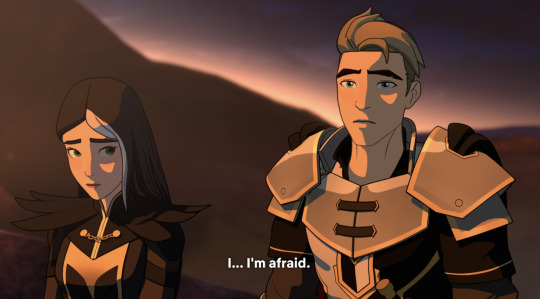
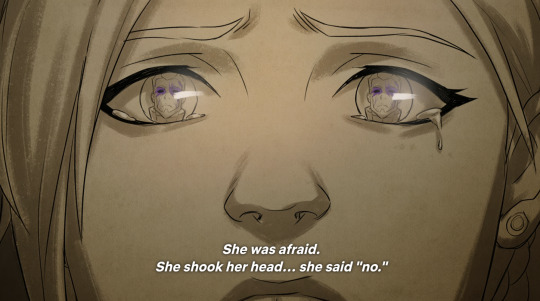
This is different as to why Terry leaves. While all three leave to preserve a sense of identity, this motivation is only stated outright for Terry by himself ("[and if I stay] I'm not sure I can really be me anymore / but I love myself the way I am"). For Lissa it's implied, thanks to her parallel to Terry, and for Soren it's symbolic: leave, lest Viren change/turn him into a 'literal monster'. Terry too resists the idea of changing for the worst, but Lissa and Soren frame Viren (their shared 'changer,' whereas Terry has Claudia and Aaravos) in far more critical terms. Whereas Terry believes even after leaving that Claudia can be saved (is still 'good'), Lissa and Soren do not think the same.
SOREN: You've seen what's going on. You saw what Dad turned Kasef into [a monster]. What Dad turned into. (3x07) VIREN: She saw my face and she trembled. She said, "You've become a monster." [after the assault] And I knew she was right. (6x06) SOREN: That's a villain. My dad is a villain. [...] The only way to stop this is to look evil in the face and say no more. (3x08)
This turn from Viren, of course, causes all three to do the same thing: leave, even if that means leaving Claudia, but more on that in a second. First, I want to make a pit stop at what I call
Narrative Weight
Being alive and feeling things are two of the most complex things that can exist, with human existence being just a shit ton to conceptualize even just as individuals, nevermind when it comes to other people or strangers. Therefore, all stories have an aspect of condensation—condensing concepts or feelings into things we can conceptualize and understand within a fictional narrative in order to make it relatable or communicative. We go for personal details and personal relationships.
An example in TDP could be how while Janai and Amaya face a political clash of human-elf cultures in season 4, Rayla and Callum face an interpersonal one. Obviously there are going to be broader cultural differences than just mourning rites, but it's grounded in something familiar and often sacred; likewise, Callum and Rayla figuring out where they fall after that clash split apart their relationship takes centre stage in season four. Both of these couples are made up of individuals, but their relationships symbolize things—a fresh start for the Sunfire elves, the reconciliation of elves and humans and the continent.
Narrative weight.
And Soren carries Lissa's.
This is largely due to how closely interwoven the two become as we get the backstory in season 6. Lissa was violated by Viren in order to save Soren; after she left the family, Viren blamed Soren for it. In many ways, he likely felt like he'd traded her for his son, and found the balance lacking. And when tasked with Viren being presented with treating another family member as spell parts, even now with that family member's consent, he refuses.
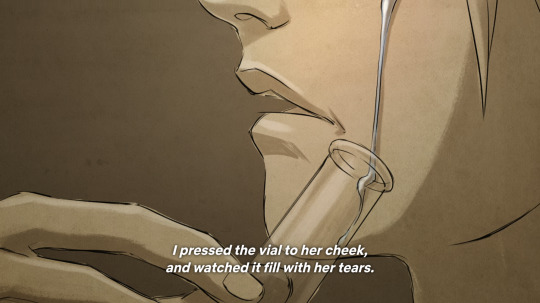
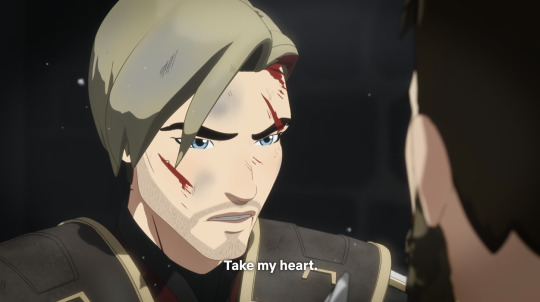
Soren and his request/willingness provides Viren the chance to take the weight he placed on Soren over Lissa and her leaving off Soren's shoulders, narratively and symbolically. However, the two are linked not just through Viren, but also through Claudia.
First, a side note:
Inversion
The other big interesting psychological underpinning, I think, is that as of season 7 there's no way that Soren has finished processing his feelings about Viren, or Viren's apology/amends... yet he clearly believes now that his father did change and that they were effective, because illusion!Lissa repeats more than a few of them verbatim.
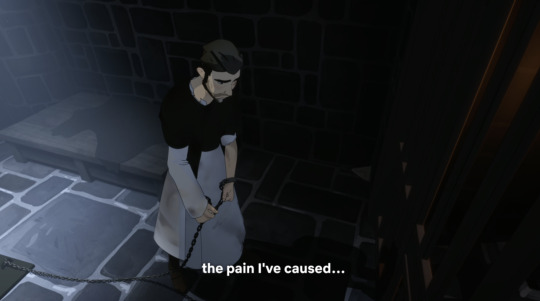
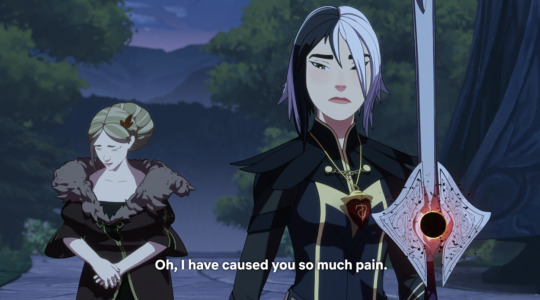
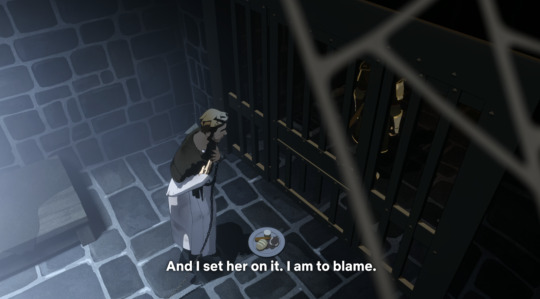
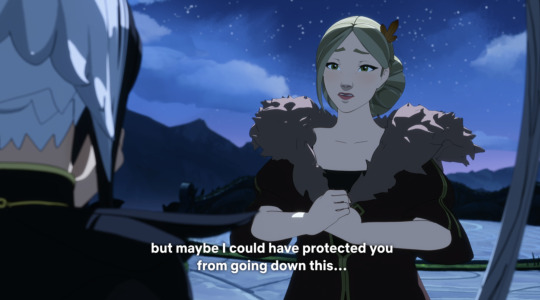
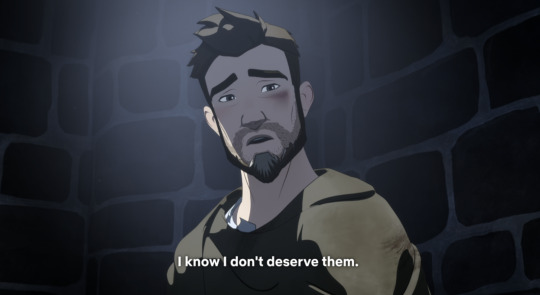
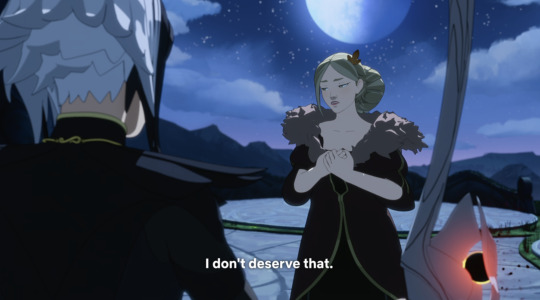
The choice to have illusion!Lissa's apology mirror Viren's is interesting to say the least, and a look into Soren's psyche at least partially. It shows that while some things from Viren did resonate enough for Soren to think they'd be effective with Claudia, and also possibly things Soren thinks his mother would never say otherwise.
Part of this is because, as stated, Lissa and Soren are inversions of each other. The inversion of one offering consent but being refused vs not offering and being violated. There are also smaller parallels, such as Viren routinely going after Soren's intelligence versus the one descriptor he has of his wife.
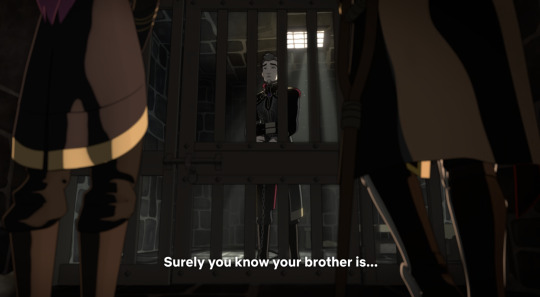
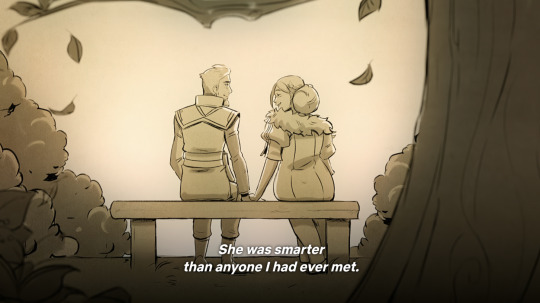
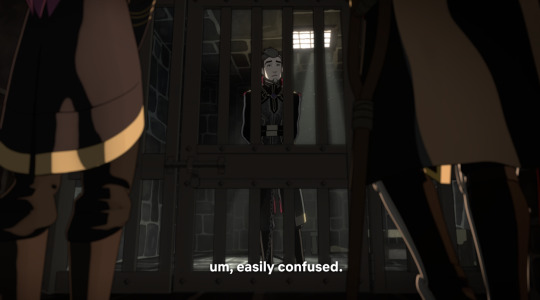
SOREN: Dad is so smart, so I figured there must be a good reason. (2x07) SOREN: Wait, I know I'm not the smartest, but I know what you said. (3x03)
Inverted parallels of staying and leaving. Of Soren being angry at his mother (and Terry) for doing—in some ways—exactly what he did to Claudia. Making her choose, and leaving her when she won't.
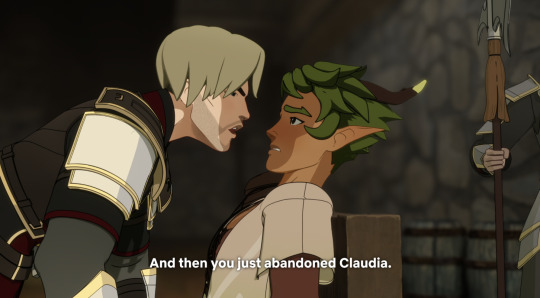
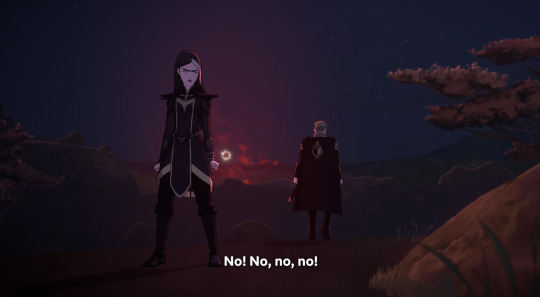
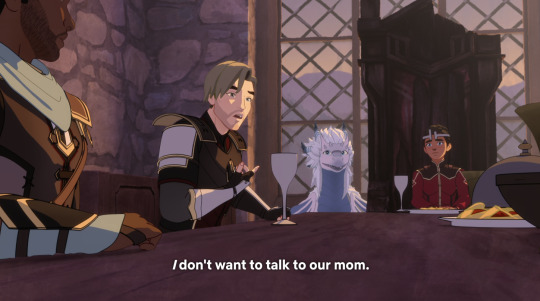
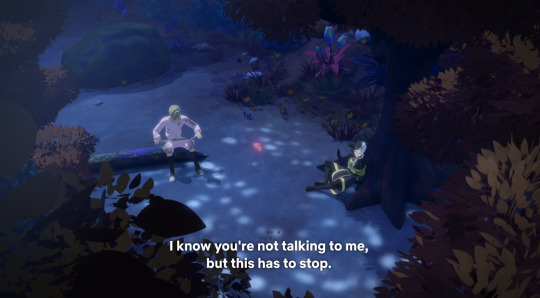
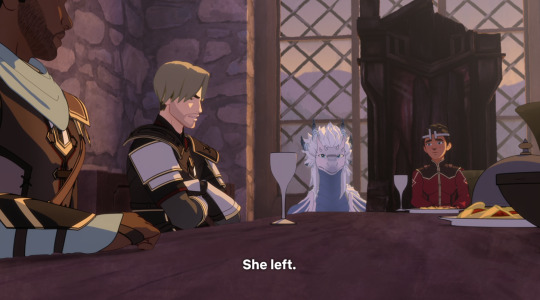
With that in mind, let's round back to Claudia, and how she links Soren and Lissa to one another.
Claudia
Season seven in some ways hammers home both Lissa as a representative for saving her children's relationship, and why it fell apart in the first place. Let's talk about the second facet first.
For example, one of the crucial things that Soren learned and internalized from Lissa is that Claudia doesn't make her choices.
CLAUDIA: And Soren chose Dad. How could I choose? How could I do that? Then my mom looked at my dad and she told me to stay.
This is why Soren has to wrestle with new aspects of his dynamic with Claudia in season 7 in such a difficult way. In prior seasons, he and Viren could both blame Viren for Claudia's actions and choices, and did so.
SOREN: Dad is dead, Claudia. You don't have to do what he wants anymore. (4x07) VIREN: I know I have set my sweet, brilliant daughter down the wrong path. I have led you by the hand and I have led you by my example. (6x01) VIREN: I have watched Claudia walk down such a dark path, Soren. And I set her on it. I am to blame. (6x05) SOREN: Put down the staff, Claudia. Dad's staff. (7x06)
This is why after Claudia asserts her own agency and choices ("Okay. Follow me" / "No, [the staff] is mine now") that Soren doubles down on his previous sentiments: "If you won't stop, then I will stop you" (4x07) to "we have to stop her" (7x08). It's taken a long time, but he's unlearned the idea his mother passed down, and can see Claudia is culpable and responsible for her choices — even if that strips away the defenses he still had up in regards to being unwilling to hurt her.
However, Lissa still represents / carries the narrative hope of the siblings reconciling for two clear reasons. One is the shot below, which is about as on the nose as you could possibly get.
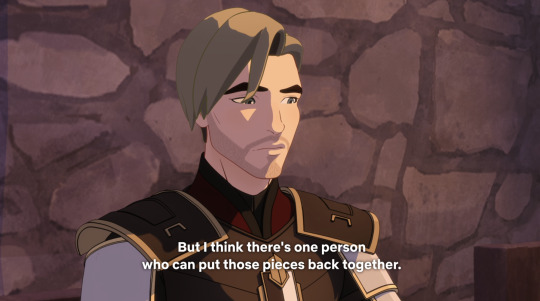
The other is because of the contrast the broyals provide in 7x09 that also harkens back to 2x09 directly:
CALLUM: I said I hated you, and would hate you forever. And Mom said it was okay to be angry, but that I couldn't let the bad feelings stick. Because we were going to need each other. Because we're brothers. I still need you, Ezran.
CLAUDIA: And [Mom] told me to stay. She said that I had to stay with Soren, that this was my home, and that my brother and I needed each other.
Lissa is also an important tenet for Soren, because in order to confront and deal with his lingering anger towards her for abandoning them, he has to also come to terms with his own feelings and recognize Claudia's about him abandoning her. Once they work through that, they can work their way back to other from the brink, because their mother was right. They need each other, and they always will.
Because Lissa is Soren's shadow self, and in some ways, Soren is his mother and sister's light.
#tdp#the dragon prince#tdp soren#soren#lissa#analysis series#morally ambiguous fam#arc 2#multi#analysis#knight sibs#arc 3#s7#s6
60 notes
·
View notes
Text
IWTV 2x02 Initial Thoughts (Stream Of Consciousness)
- ooh the title card changed! I’ve been wanting to see the Eiffel Tower as a “fang” since season two was announced. WE IN PARIS BABY!
- ayooo three-way (interview) incoming
- Daniel’s “Paris sucks” aka “Paris is where my ex-bf is from and he sucks (dick), but not mine anymore, and no, I’m not bitter abt that, his city just fucking stinks (literally)”
- not two minutes in and Devil’s Minion is already flirting bickering
- ALICE MENTION alice!armand truthers are gon love that shit i just know
- “I’ll tell you what a woman is” That’s my sapphic-coded queen!!! 🕯️ pls S2 give me claudeleine 🕯️
- “Gauche” well, yes.
- Loumand: 🥰🥰 Daniel: 🙄 he‘s so second-hand embarrassed for them I can’t
- I mean, it’s crazy. What? We finish each other’s- I WAS WITH HIM FOR LONGER THAN LESTAT WAS WITH HIM WRITE THAT DOWN WRITE THAT DOWN DANIEL PUT IT ON RECORD WEVE BEEN FUCKING FOR LIKE DOUBLE THE TIME …that’s what i…was….gonna say?
- Louis would be that faux-intellectual hipster who has his own darkroom full of overexposed and blurry, unfocused photos that are his “art” bc he took them on film (affectionate)
- Not claudia calling him out on it in the next scene “let me think I’m deeper than I am” okay honey you do you
- “She’s miserable but she doesn’t want to fuck with your too delusional left bank dilettante vibes” ahh the narrative foils are foiling, I see
- The show: Alice was pregnant, My dumb ass: OMEGAVERSE DEVILS MINION !?!?
- “joyfully joyless” MOOD.
- Claudia looking at Madeleine like “I don’t know if I want to be her or be with her” Dw babe it’s a rite of passage for all of us you’ll figure it out
- “Your French is ugly” 🥹👉👈 weally?
- “the dress for my body” LOOK I know what she meant, but I can’t help it that my mind is perverted
- LMFAO NOT GLORYHOLE PARK
- okay why Loumand playing with my heart “I will never harm you. And I never have” wtf wtf wtf
-Oh no the ole business card trick! we all know that’s Louis’ kryptonite he loves a man with credentials
- i like girls, but why is santiago kinda…
- Woah the Annika scene was really hard to watch which I think was the point but goddamn idk if I’ll be able to rewatch that part
- Estelle is my self-insert. I’m claiming her.
- “You both fucked Lestat!?!” HOW DID THEY KNOW WE WANTED HIM TO SAY THAT!?
- “He tasted of vermouth and annihilation” We both know you have no earthly idea what that man tastes like, Armand. Be so fucking fr right now.
- Did Armand just casually drop that he had a threesome with a father and son? I’m sorry, sir????
- “Now I know what two blood fat cocks slapping hands feel like” When I tell you my spirit left my body
- oh shit here we go. I’m a caged animal and it’s time for my weekly enrichment. give me my loustat.
- there’s a letter !?!? Wait wait I wasn’t ready for something like this wait stop stop please
- “all my love belongs to you. you are its keeper” just take me out back and shoot me at this point
- “it is a thin veil” fucking fuck why was that so romantic??
- the blood tears welling up in Lestat’s eyes I’m-
- “Rebound of my life” and in that moment, he spoke for the people
- WHAT IS HAPPENING???? Jesus Christ, they were talking about Alice and then it cuts to FUCKING ARMAND!?! This is not a drill. Everyone to your stations, this is not a drill.
- “You sold your Dad’s playboy magazines at recess” Hmmm? You’re telling me a “straight” teenage boy sold porno mags instead of keeping them for himself??? Yeah, I call gay on that one
- “she wanted to say yes” you motherfuckers.
- Oh shit Louis is pissy tonight rawr kitty got claws
- Devils minion girlies are thriving, skin glowing, hair silky, breath minty, pillow cold, stomach full, dreams sweet, and by Jove, we fucking deserve it !!!!
- daniel’s shaky “um- gulp” …….guys this is gonna sound crazy but i think there might actually be a god
- ooh the camera/photography being like a divide or barrier between Louis and his present situation. Like he wants to capture the moments, but only as if an onlooker and not a participant… interesting!
- “Who?” will never not be funny
- “Mon ami” in the same episode as “Mon Cher” FUCK ME GENTLY WITH A CHAINSAW
- “Armand for you” nah nah nah i changed my mind, you can do like Leatherface and shove that chainsaw in rough and hard
- Close up on Louis’ conflicted face, fire blazing behind him…. That’s not foreboding in any way. I’m sure they’ll all live happily ever after from now on :D
What a ride! Until next week! 🧛♂️🩸
#interview with the vampire#amc iwtv#iwtv season 2#iwtv 2x02#iwtv thoughts#iwtv musings#loustat#devils minion#claudeleine#iwtv spoilers#iwtv s2#lestat de lioncourt#louis de pointe du lac#iwtv armand
70 notes
·
View notes
Text
The Amulet of Avalor: A blessing and a curse in the new series.
I have a feeling they're going to end up having to reduce the narrative influence of the Amulet of Avalor.
When it comes to the amulet, it's possible that they reduce its powers in some way. Or magically signals that Sofia no longer needs it, and that it should look for a new carrier, breaking her promise for the greater good.
( Or will it continue in the family? Will Miranda and Roland have a new member in the family? An adopted child, or perhaps a baby? Perhaps Aunt Tilly and Sir Bartley will have a child and Sofia will present the child with the amulet. )
Perhaps Sofia loses the amulet, implying that the amulet would be found by a new princess without Sofia having to break her promise.
Or, in a more "dark" alternative, the amulet becomes defective or breaks completely. Making it impossible for it to be used by her.
( Until it is fixed in a convenient way, so that it doesn't break the lore logic about the amulet being worn by multiple Disney princesses.)
Because its powers if they were "unlocked" at the grand finale of Sofia The First, and with Sofia's character development, the chances of her being cursed by it are reduced.
And if Sofia, using the Amulet of Avalor, doesn't have many challenges for her, what will the next challenges be?
On the merchandising front: if they decide to reuse the amulet, it's possible it will get an updated look.
If it already changed color during the series after Elena was freed from inside it, it's likely that it will undergo design changes in the new series as well.
( Whether it will get better or worse is debatable.)
What if they decide that the amulet is no longer viable as a recognizable source of merchandising? And that they need something more iconic and unique for the new series?
They will probably come up with some excuse as to why the amulet is no longer present, and have come up with a new "more magical and fantastic " item for Princess Sofia.
( Which also, will be equally debatable whether the change will be for the better or worse.)
And you guys? What do you think about this? I would like to know your opinion.
@shychick-52 @mushroomsie224 @ushsblog @cedric-my-beloved @moonypears-blog
23 notes
·
View notes
Text
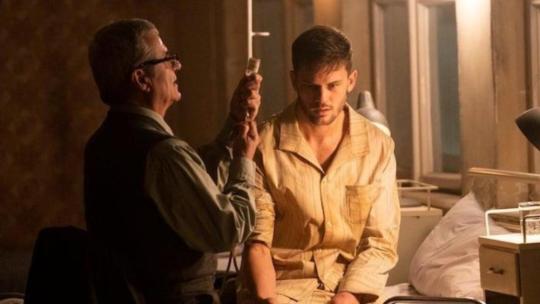
Treadstone (2019) is "from the world of Jason Bourne" (and "based on an organization from the novels by Robert Ludlum," the credits tell us). It doesn't at all manage to capture the nervy energy of the movies, but don't worry--it's bad in its own right, too.
Tim Kring is the showrunner and he seems to be aiming for a repeat of his Heroes success, with a vast and diverse cast sprawling across the globe. But whereas the fun of Heroes was watching the characters intersect and slowly join together for an apocalyptic climax, almost everyone in Treadstone is off in their own little world. One storyline is set in 1973! Characters regularly disappear from the narrative for entire episodes on end and when they reappear, it's a chore to remember where we last left them and what they're up to.
The main thrust of the plot would seem to be a North Korean plot to buy a nuclear missile from Russia that's aimed at Washington DC--though the only person that seems to care about this is an intrepid reporter, while other agents are tasked with pressing concerns like investigating a shot-up 7/11 or taking over the contraband pain pills business in the Midwest (no sir, I am not joking).
Where you'd think all the individual threads would come together at the end of this ten-hour series to stop the threat once and for all, the show leaves pretty much nothing resolved, everything on hold for a canceled second season.
The storyline would seem to involve Russian sleeper agents called Cicadas who are being reactivated to cause trouble--or maybe they're American sleeper agents--and aren't they all a bit young to have anything to do with the Soviet Union, which collapsed in 1991? Han Hyo-joo was born in 1987. Did the Russians train her to snap necks as a toddler?
Maybe I'm being facetious, since the CIA turns out to be corrupt and involved in a nasty plot involving American big business, a Russian obligarch, and a North Korean coup. Why, if the bad guys were running the CIA, could they not have just ordered the good CIA agents to stand down? Or prevented them from knowing there was a plot in the first place? I guess they're just bad at their jobs.
After all, we're told that the longer a Cicada is inactive, the more their programming breaks down... which would seem to miss the entire point of a sleeper agent, if you ask me... leading to virtually every protagonist being a Treadstone agent who is able to defy orders and do whatever they want. Just in case you thought Jason Bourne was a one-in-a-million fluke.
I feel like I'm underselling how hard it is to keep track of everything that's going on... the Bourne movies had complicated plots, but they earned being complex, they felt like they were really depicting, with verisimilitude, how these characters would operate in the real world. Treadstone features a character recovering his lost memories because he takes drugs with a hippie. Now, why didn't Matt Damon ever think of that?
I'm just going to list every main character and you tell me if you think they should've pared this story down somewhere.
*John Randolph Bentley is a CIA agent in 1971 for a sort of Jason Bourne: Origins story. He breaks out of a Soviet brainwashing factory after being held there for nine months, then has to prove that there's no way he could've been brainwashed.
*Petra Andropov is the woman responsible for brainwashing Bentley and she also fell in love with him. In the present, she's an old lady guarding the nuclear missile everyone (well, one person) is worried about. Despite the missile being key to the bad guys' plot, the show states that she's been forgotten about and the missile left to rust--no one thought to check up on it before they needed to use it?
*Tara Coleman is the reporter who somehow ends up being the tip of the spear for tracking down the nuke and stopping Washington from getting nuked.
*Matt Edwards is the CIA agent who starts off a little concern about Washington glowing in the dark, but then gets sidetracked by a Cicada/Treadstone agent who went a bit nutty.
*Ellen Becker is a CIA chief who is basically on looking at big monitors and going "Jesus Christ, that's Jason Bourne" duty.
*Doug McKenna is another Cicada/Treadstone agent whose wife turns out to be his handler, because she fell in love with him while brainwashing him. Did we really need two takes on this rapey dynamic?
*Soyun Park is a Cicada/Treadstone agent in North Korea. Since she's a woman, her spouse is just a normal dude and she angsts instead about taking care of her kid.
If this doesn't sound like a lot of characters, keep in mind, almost none of them are sharing a subplot. They all have their own storylines which barely intersect with everyone else's story. I get that the intent is to show all or at least most of the tentacles of this vast conspiracy, but did we really need to know all these aspects of the conspiracy? Did it have to be so vast that it includes the opiate crisis, North Korea, Soviet nukes, the year 1973...
I think if they had just edited it down to a few characters whose story was all wrapped up at the end of the season, they could've been onto something, but the show as is just takes on so much and covers so much ground that none of it comes together. It all just ends up feeling like random noise. Say what you will about 24, but at least it has an ending every season.
9 notes
·
View notes
Text
Lecture Notes MON 2nd OCT
Masterlist
BUY ME A COFFEE
Art History: Doing Art History
The course is taking on board both certificate students and BA, with a focus more towards adult students. A preference is made towards handing in anything that’s not paper written, must be electronic.
SHORT VISUAL ANALYSIS:
Choose an artwork (painting, statue, photograph, sculpture etc), spend time looking at it. One you can preferably visit in person. Compose 500 words, highlighting the significant details that help you understand the work better. The artists intentions. Talk about Texture, Shape, Colour, Narrative, Emotions. How does the composition invite you in? How does it do it?
I have chosen this artwork…It evokes…
FOCUS ON JUST LOOKING – Please refer to my written piece on The Execution of Lady Jane Grey if necessary. Although this is also a historical analysis there is a part of it that just focuses on breaking down the painting and what it visually represents, and how it achieves that.
What is ‘art’?
Sir Ernst Gombrich: ‘There is no such thing as Art. There are only artists.’ The Story of Art (1950)
The most elusive of terms, its validity is only vouchsafed in cultures which admit to such a concept. Broadly speaking, the term ‘art’ in the visual sense can be applied to any work/subject which engenders, by intent or otherwise, aesthetic and/or intellectual appreciation. In a teasing subversion of the title of his magisterial survey The Story of Art (1950) the great art historian Sir Ernst Gombrich declared, ‘There really is no such thing as Art. There are only artists.’ Clarke, Michael. "art." The Concise Oxford Dictionary of Art Terms. : Oxford University Press, . Oxford Reference online. [Accessed 01.10.2022]
The term ‘art’ in the visual sense can be applied to all manner of creative forms/subjects: Photography, painting, sculpture, performance piece, architecture etc. Looking at Art as opposed to studying it, when we look at artwork, where it is placed will have great significance on our interpretation of it and understanding. For instance, if you see a poster by a bus stop and an oil painting in a gallery, you will have varied responses to it. Will take longer to consider one, of course their intentions vary wildly, but that does not change the fact that the poster is still a creative piece of media. An artwork.
“Art originally meant skill, possessing the ability to do something. But if you know precisely how to do it, it can soon become boring. Actually, I would define art as something you don’t know how to do - not yet, that is. You’re learning. Art is always alive, always moving. It never stands still.” Vilhelm Lundstrøm, quoted in Wilmann, Preben, and Marianne Brøns. Lundstrøm. Copenhagen: Gyldendal, 1977, p.428
Take also for instance the place in which you were raised and the views you have, that will create unconscious preferences and biases towards certain art. Not only that but it impacts our understanding and presentation of an artwork/reading. Especially from a curator who may be of Western descent about an artwork from the East. Studying as opposed to being raised in the culture will have an immense impact.
youtube
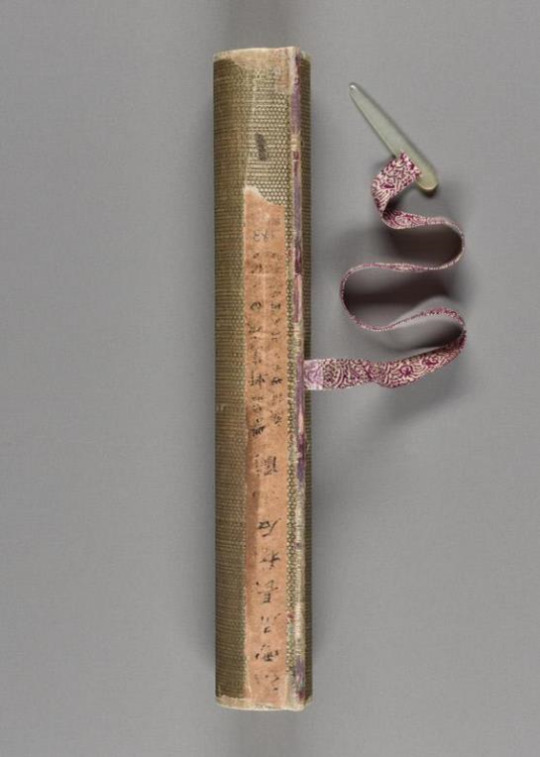

Also consider the perception of the artwork and how it has changed historically. An artist’s body of work, artworks that have gone missing and the ideas surrounding forgery or duplication/mass copying (less valuable to collectors).

Old ways of studying art and what it meant in the wider context of national development:
People created casts of original classical works, to shape a nations museum or art school and to develop their country creatively. Mainly European and American museums focused on this practice, an example of this can be found in the Royal Academy in London.
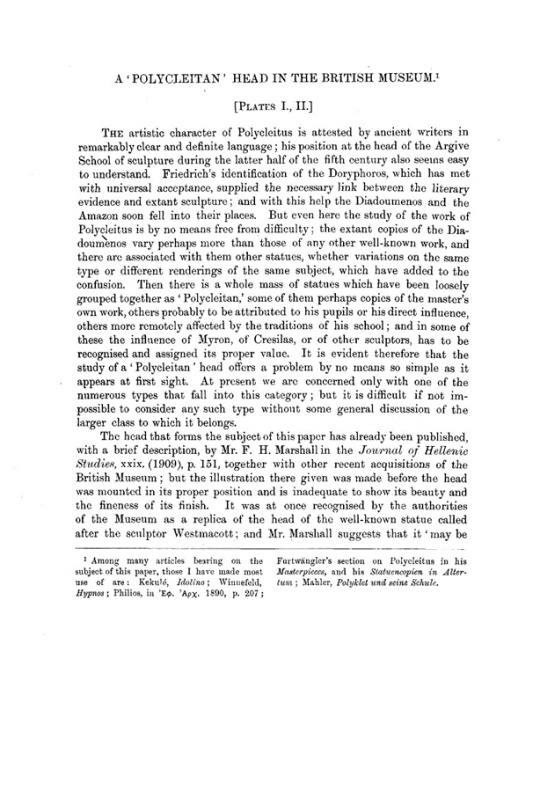
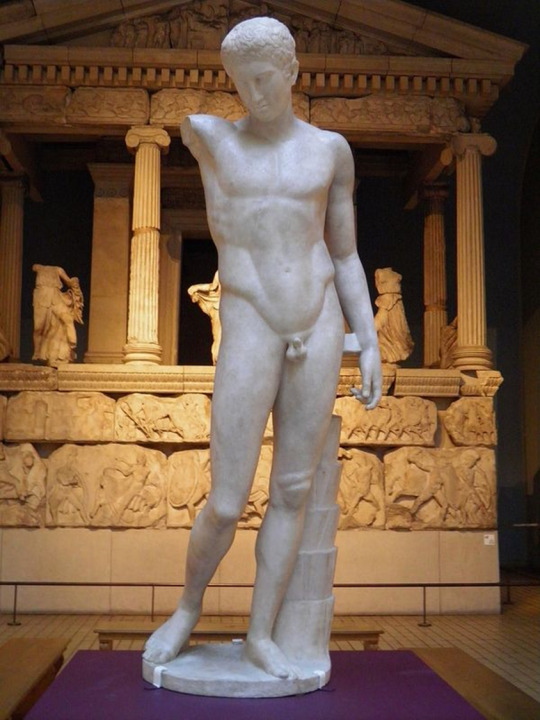
The Westmacott Athlete, marble, 1st century AD (after a Greek bronze original of about 430 BC) British museum
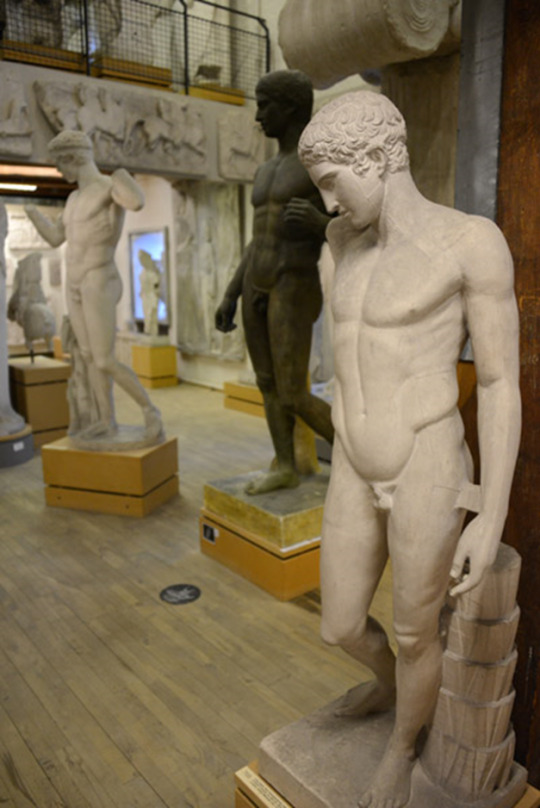
Brian McMorrow, Royal Cast Collection, Copenhagen, 2013
Note: How did the understanding of artists get created?
Everything you write joins an evolving discourse about art, nothing in the art world is ever final or determined. Do not be afraid to explore ideas, and the changing perceptions as we view them through our own lens and perspectives. Explore how these ideas are shared.
Public and Private collections: accessibility also shapes value and meaning.
Mass reproductions (example: on mugs, clothes, bookmarks etc) changes an artwork. An artwork should excite many emotional responses, otherwise it has failed.
Certain museums are either exploring this aspect by making more of their collections private or public, see British Museum and its vast collection and how that causes problems/opportunities.
Brief History of Art History: Male scholars first were taught the subject, which then bled into universities. Which then opened to undergraduates. Shown in dual projections on a screen/board to compare and contrast, as a large aspect of art history is comparing.
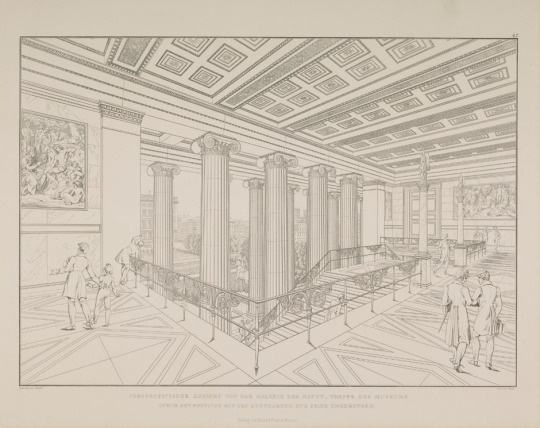
Karl Friedrich Schinkel, Perspective view of the main staircase gallery (Plate 43 of 'Altes Museum' from Sammlung Architektonischer Entwürfe) (1822-30, National Galleries of Scotland)

The Warburg Institute, part of the University of London from 1944.
#art hitory#art#architecture#art gallery#artwork#Youtube#history#museums#photography#sculpture#sculptor#artists#art tag#lecture#notes#study notes#writing#writers on tumblr#creative writing#writers and poets#writers#essay#paintings#art exhibition#art show#essay writing#drawings#writeblr#illustration#art history
7 notes
·
View notes
Text
Yes, My Commander | Power Rangers: S.P.D. - CHAPTER 09

CHAPTER 09
News of what happened to Merlandia quickly spread like an open secret around the base. The official announcement would not take long to be made, but Cruger first wanted to inform his Ranger team. That's why, after talking with Kat in his office and asking him to solicit B-Squad to the Command Room, he did the same with A-Squad.
The five Rangers, including Officer Charlie Grayson, responded to their Commander's call. As Cruger had told Kat, he and the Red Ranger had come to an agreement, and she had agreed to follow orders and fulfill her responsibilities as a Power Ranger, at least until this threat was neutralized.
Back in the Command Room, the members of A-Squad stood at attention side by side, listening intently to Cruger's explanation, somewhat less detailed than the one he had shared with Kat earlier, but just as powerful. It also helped that, along with his narrative of the events, he had projected a hologram recreation of the planet's destruction, based on satellite images and the testimony of survivors.
Seeing the entire planet being destroyed by a direct shot from the Space Terror was a huge shock to the Rangers, and it was clearly evident in their pale expressions. Or at least four of them did, because Charlie watched the reenactment with her usual stoic expression, not quite making it clear what was going through her mind.
"If we had gone there, maybe..." Kioko, the Pink Ranger, murmured lamentably.
"Maybe we would have died, too," said Mark, the Yellow Ranger, exasperated.
"You don't know that," Orien, the Green Ranger, replied, clearly irritated.
Zorath, the Blue Ranger, remained silent as usual. However, his four eyes never left the reenactment of the destruction playing repeatedly until Cruger pulled it away. As soon as he did, he seemed to start slightly, as if abruptly pulled out of a dream; or a bad memory.
"This isn't the time to lament the planet we can no longer do anything for," Charlie declared, her voice surprisingly cool and calm. "We must move on and ensure that Earth doesn't suffer the same fate."
"I'm afraid Officer Grayson is right," Cruger agreed gravely. "There will be time to grieve and rebuild. For now, as you all know, there are important matters to attend to."
"I suppose it's time to go to the front, isn't it, sir?" the Red Ranger inquired, though it didn't exactly sound like a question. "When do we leave?"
"Before that, you'll need to undergo one last intensive training. Space combat presents several unique characteristics different from ground combat, which you'll inevitably encounter on your next mission."
"We've already fought in space, sir," Kioko said, a little confused.
"Not under these circumstances. As I've already told you, preparation is the key to tactical defense. Therefore, before you leave, you will report to Space Station Red Lion III with Captain Earhardt to conduct a quick series of flight simulations."
"Cool, I like Captain Earhardt," Mark declared eloquently. "She's pretty for... how old do you think she is?" he murmured softly to Orien, but Orien just nudged him to signal him to be quiet.
"Don't worry, Commander," Charlie intervened firmly. "We'll pass the tests without any problem."
"I firmly believe that you will. Remember that the fate of Earth, and now the entire galaxy, is in your hands. Good luck, A-Squad."
"Yes, sir," the five of them, including Zorath, said simultaneously as they saluted their Commander. He nodded, pleased. It was good to know that their ordeal was behind them; at least for now.
"You heard him," Charlie shouted loudly in a commanding voice. She pulled out her Delta Morpher, holding it firmly in front of her, and her four companions followed her. "A-Squad! SPD! Emergency!"
— — — —
Just as Cruger had requested, Kat informed B-Squad that he wanted to see them in the Command Room, so Sky, Syd, and Bridge rushed to answer his call. None of them expressed it out loud (or even directly), but the fact that the Commander wanted to see them and what they had discussed with Dr. Manx earlier gave them the feeling that the time had finally come. All the testing and training would finally bear fruit.
As they were already in the hallway near the Command Room, the door opened, and five colorful figures rushed out in a row, led by one in red and black. The A-Squad in person.
Sky felt his pulse quicken. It was the first time he'd met them head-on in his entire time there. And while he was obviously dying to meet them, it was instantly clear they were in a hurry, as was to be expected, given that they were Earth's greatest heroes.
"Attention!" Sky called out loud, immediately stepping aside to let them through, standing at attention with his chin held high as a sign of respect for his superiors. Syd quickly followed suit when she saw what he was doing, while Bridge, more distracted than he should have been, took longer than expected to move aside, so the red-clad Ranger shoved him with their shoulder as they passed, nearly knocking him off his feet.
Bridge stumbled sideways after the push, landing against the wall. But he quickly raised his gaze, focusing intently on the Rangers moving away down the hallway.
"Be careful where you walk, rookie!" one of the five said aloud, though it wasn't clear which one.
As they moved forward, Bridge could see the trail their auras left in the air for a second. They were brightly colored auras, as he would have expected, but… they seemed muddied, like choppy, darkened waters.
Bridge stared in their direction, somewhat absentminded.
That sudden contact with the Red Ranger had reverberated something in his powers. It was like a flash of sensations that suddenly flooded him. It wasn't unusual for that to happen when he unexpectedly touched someone, but it hadn't occurred to him that it would provoke such an... uneasy feeling.
"There goes the best Ranger Squad in the galaxy," Sky declared proudly, looking in the direction the Rangers had gone. "And someday, I'll be one of them."
"We will be one of them, Sky," Syd corrected him harshly. "Someday the three of us will be as good and renowned as they are."
Sky laughed under his breath.
"If you stay close to me, you might have a chance."
Syd snorted, not happy with his comment but unwilling to fight about it either.
The three resumed their walk to the Command Room, or at least the two in front thought so.
"Didn't they seem a bit too big?" Syd said, sounding genuinely impressed. "Do you think the suit will make you taller?"
She turned back to seek Bridge's opinion, and realized that her companion had fallen a few steps behind. He was moving forward, but with slower steps, his thoughtful gaze fixed on the ground.
"Bridge, what's wrong?" Syd asked.
"I don't know," Bridge replied hesitantly. He stopped, raised his face, and turned back toward the hallway, as if he still expected to see them there. "The A-Squad, their auras..."
"Their auras, what?" Syd asked, confused.
Bridge was silent for a few seconds, then slowly shook his head.
"Nothing. They're just not what I expected."
"I don't know what that means," Sky said scoldingly, "but you better not say anything that will insult them when we finally meet them in person."
"Are you going to ask Charlie Grayson for his autograph and everything when that happens?" Syd asked playfully.
"Of course not," Sky answered quickly, but his cheeks colored with embarrassment. "But… maybe I'll ask for some advice, one Red Ranger to another."
"At least wait until they give you the uniform first, great leader."
The three continued toward the Command Room, but Bridge remained a little behind, pondering what had just happened. He would have to force himself to put it aside for the moment, as he would need a clear mind, or at least as close to it as Bridge could get.
— — — —
The Commander welcomed them into the Command Room. Like A-Squad had done before them, the three stood side by side in front of him, offering him the salute.
"Commander Cruger," Sky said firmly, "Cadets Tate, Drew, and Carson reporting to your call."
"Cadets," the Commander murmured, nodding.
He analyzed the three of them for a few seconds. It wasn't the first time he'd seen them in person, but it felt different to do so in this new context after spending so many weeks reading their files and test results. They looked so young, almost childlike innocence adorning their gaze. They were very different from A-Squad, but that didn't mean it was a bad thing; they would have to prove that themselves, and they would have to prove it sooner than expected.
After those moments of reflection, Cruger adopted a firmer stance and began speaking without delay.
"Dr. Manx has shared with me the results of each test she's applied to you, and you've passed with flying colors. You should be proud of your progress."
"Yes, sir, we are," Sky replied, on his own and clearly on behalf of his teammates as well.
"It's important that the three of you know that your training is not over," Cruger stated, "nor will it ever be. As agents protecting the universe's peace, it will be your responsibility to always strive to improve. However, due to a series of situations, which I won't go into detail about now, I find it necessary to expedite your process and assign B-Squad to active duty."
The news caused considerable emotion in the three cadets, although it was less evident in Sky and much more so in Syd.
"Yes!" exclaimed the blond-haired young woman, almost jumping for joy on the spot. "So, will we get our colored suits?"
The Commander looked at her silently, his expression stern, and that was enough for Syd to realize that she might have lost a little too much of her form.
"Sir," she said in a low voice, quickly resuming a more serious posture.
"Not yet," Cruger finally answered her question. "But I will assign you your first official mission."
"Excellent," Bridge said loudly, raising his fist slightly in a sign of victory. "What's this about? I'm firing now, Commander."
"Bridge," Sky whispered softly in reprimand.
"I admire your enthusiasm, Cadet Carson," Cruger said with a hint of humor.
"Hey," Syd exclaimed, letting a bit of her displeasure show at his silent scolding from earlier, compared to that last comment.
Cruger cleared his throat a little, but remained calm.
"So yours, Cadet Drew," he added shortly afterward, though Syd didn't seem entirely convinced. He decided it was best not to dwell on it further and continue. "As your first mission, you must apprehend the Parkington Market thieves."
He handed them an information device, which Sky quickly grabbed before the others. He connected the device to his cadet intercom, and it projected a hologram in front of him, showing the full case file. Sky began to skim through it, and Syd approached from the side to also look at it.
"Apprehend the Parkington Market thieves, of course," Bridge said enthusiastically. "And that's the key to…?"
He stared at the Commander, waiting for him to finish his sentence. Cruger watched him silently for a few seconds, then simply repeated:
"Apprehend the Parkington Market thieves."
Bridge nodded, seemingly fascinated by this for some reason.
"You'll find all the relevant information in the file," the Commander added. "Including a description of the suspects and their most recent attacks."
"Uhm, sir," Syd murmured, raising a hand to make herself noticed. "It says here the suspects are human," she indicated, pointing a finger at the holographic file.
"As far as we know, that's right," Cruger replied.
"But I'm confused. Isn't apprehending simple human street thieves the job of the local police department?"
"Usually yes. However, we were assigned the case due to certain peculiarities."
"What peculiarities...?" Syd asked, curious but also confused.
Before Cruger could answer, Sky intervened to end the conversation. If they continued asking questions, it would only further expose their inexperience, and that was one of the things they least wanted to reflect on their first mission.
"We'll take care of it, sir," he declared confidently, again speaking for himself and his companions. He withdrew the holographic file and placed the device on his belt.
Cruger nodded in approval.
"Good luck, B-Squad."
The three stood at attention and saluted their Commander again. With seemingly nothing else to say, the three turned in sync toward the door and left the room.
"Okay, our first mission," Bridge said enthusiastically once they were in the hallway.
"And a simple one, too," Syd added, shrugging.
"Don't get too confident," Sky told them seriously. "We have to do things right and impress the Commander. Only then will they finally promote us to Power Rangers."
"Relax, Sky," Syd muttered nonchalantly. "How hard can it be to catch two simple street thieves?"
— — — —
But it did turn out to be a lot harder than they expected.
Once the three cadets arrived at Parkington Market and began scouring the area, it didn't take long for them to locate the two suspects, the boy and girl described in the case file. In fact, these two didn't make much of an effort to hide either.
At first glance, it seemed like it would be a piece of cake. Sky, Syd, and Bridge rushed to intercept them mid-flight with the stolen merchandise and cornered them. Three well-trained cadets against two regular thieves; what could go wrong? However, the peculiarities that Cruger had told them about soon came to light. The two suspects utilized outstanding combat skills on the one hand, and their meta powers on the other, which together allowed them to quickly slip away from their three pursuers, making fools of themselves in the eyes of all the market witnesses who saw the incident. Their statements wouldn't describe it in those words, but they would come pretty close.
Later that day, after going through that ordeal on their first mission, the three cadets had no choice but to return to the Command Room before the Commander, defeated and humiliated.
"A rather unpromising performance on their first mission, to put it mildly," Cruger said in a neutral voice that gave no indication of whether he was angry or not, though common sense would answer that question on its own. "Does anyone have an explanation for this result?" he blurted out, his gaze fixed on the cadets.
The three seemed more than willing to speak simultaneously, perhaps trying in their own way to provide that explanation. But before any of them could utter a word, Cruger stopped them with a stop gesture of his hand.
"Spare it," he ordered them bluntly. "The only truth is that you underestimated your opponents and were defeated. You made the most basic mistake of any confrontation."
"With all due respect, sir," Syd chimed in, with just the right amount of defensiveness. "But we weren't fully prepared. We didn't know the suspects also had powers."
"It was in the file," Cruger pointed out sternly, taking the three of them quite by surprise.
"Oh yeah?" Syd murmured nervously.
Sky quickly pulled out his device and re-projected the case file. Bridge and Syd leaned over his shoulders to watch. Following the description of the robberies were a series of notes describing the peculiarities witnessed, which could be summed up as follows: the boy seemed to be able to phase through objects like a ghost; and the girl either they were a gang of identical quintuplets stealing in tandem, or she seemed to be able to multiply herself and be in several places at once.
This was entirely in line with what they had experienced.
"Oh, look, it says so here," Syd muttered painedly. She stepped back and bowed her head, preferring to remain silent for the moment. The other two did almost the same.
Not reading the entire file; one of the most rookie mistakes in history.
"And that's no excuse either," the Commander exclaimed harshly. "You have your powers too, don't you? Which you've trained and improved on over all this time. Or will you tell me that two mere street thieves have more training and ability than you?"
"No, sir, of course not," Sky replied with complete certainty. "No more than me, at least."
Bridge and Syd jumped at such a comment and turned to look at him simultaneously, incredulous at its implication.
"What?" Bridge exclaimed, a mixture of surprise and annoyance. "Those guys kicked your ass as much as they kicked us, Sky."
"They didn't kick my ass," Sky defended himself firmly. "They caught me off guard because I had to watch your backs. If I'd been alone, I would have succeeded."
Offense filled the expressions of his two companions at such an insult. Sky remained calm, staring straight ahead, as if ignoring them.
"And this is how you want to be the Red Ranger? By blaming your team?" Syd questioned angrily. "I'd be a better Red Ranger than you."
Sky let out a not-so-discreet, mocking snort in response to that comment.
"Of course…"
"Enough!" Cruger snapped loudly, his voice echoing around the room. The three cadets hurried to resume their positions, as did some of the attendants in the Command Room.
Cruger took a deep breath through his nose, trying to calm himself down before speaking again.
"Look at yourselves," he murmured in a calmer, but equally stern, voice. "You've barely left on your first mission, and you're already fighting, instead of planning how to apprehend the criminals. There's no team spirit among you. And without that quality, you can't be the Ranger Squad this planet needs."
The three remained silent, their gazes lowered. They were thoughtful about that remark, not to call it a scolding. All three had done very well in their tests, but faced with the first uncontrolled difficulty of the real world, they had failed.
"Maybe we're not ready to be Rangers," Syd finally muttered in a sad voice. "Maybe we just need more training."
"What? No, nothing of the sort," Sky exclaimed, alarmed. "I'm ready, sir," he said firmly, looking confidently at the Commander. "Give us another chance, and I'll prove it to you."
"You'll get it," Cruger pointed out. "It won't be the last time you see those two. For now, a few extra hours of simulator training will do you good."
That instruction didn't go down well with the three cadets. They were already exhausted from the morning's tests and then going out on that infamous failed mission, and now they had to go through forced training. Plus, they'd spent so much time in that simulator over the past few weeks that they'd already begun to dislike it.
But, of course, that was not a suggestion.
"Now," Cruger emphasized harshly. The three cadets had no choice but to obey. "Cadet Tate," the Commandant said, halting before he could get too far away. "You come with me for a minute first. I need to speak with you privately."
Sky's face turned a little pale. From how he'd said that and the context of the situation, it didn't seem like he would talk to him about something good. And his other teammates, of course, perceived it the same way.
"Good luck, great leader," Syd whispered playfully, patting him on the arm. She and Bridge hurried to the door, leaving Sky behind.
Author's Notes:
We're still in Episode 1, getting to know the guys in our B-Squad a little better. Of course, we had to leave out a few things. As I mentioned in the initial notes, the intention of this story isn't to rewrite the entire series scene by scene or episode by episode. That's why we'll summarize or omit some things, focusing on what I consider relevant to what I want to tell. But don't worry, Jack and Z will make their on-camera debut soon.
0 notes
Text

sonnet blog!!!!!
history & the verse form
(this won't all be about Shakespeare I promise, just a little bit 🤏)
The form of the sonnet has taken many turns throughout its history; from Petrarch, to Shakespeare, to the modern day. However, the general premise has remained the same; it must concern 14 lines, written in iambic pentameter (the heart beat rhymth of stressed and unstressed syllables; di-DUM-di-DUM-di-DUM). There are 2 main types of sonnets; Petrarchan and Shakespearean (which did not actually originate from Shakespeare, he just made it popular and took credit (as always!)).
Petrarch 🌟
The Petrarchan (or Italian) sonnet is comprised of an 8 line stanza, then a 6 line stanza. The stanzas follow a strict rhyme scheme of ABBA ABBA then, CDECDE or CDCCDC, which is perfect for the poetic and easily rhymed Italian language. The Petrarchan sonnet has the signature 'volta' which occurs between the stanzas, generally meaning that the second stanza answers the question or changes the narrative presented in the first stanza.
Sir Thomas Wyatt & Henry Howard 🌟
Wyatt and Howard introduced the Italian sonnet into England, through their famous translations of Petrarch's sonnets. This was when the Italian sonnet was most popular in England - though it gradually transformed into the English sonnet form. The sonnet had to transform due to the difficulty of rhyming the English language. The English sonnet has 3 quatrains, with a rhyming couplet at the end - it has a rhyme scheme of ABAB CDCD EFEF GG, making it much less difficult to write than the Italian sonnet.
Shakespeare 🌟
The Shakespearean sonnet is the same structure as the English sonnet, but it was simply just popularised by Shakespeare in his collection of 154 sonnets. The couplet in the English sonnet form behaves as a conclusion to the story (a similar technique as Shakespeare uses to conclude the soliloquies in his dramatic plays) almost like the 'volta' in the Petrarchan sonnet form. Prior to Shakespeare's collection of sonnets, each sonnet would act as an individual piece, however Shakespeare's 154 sonnets all act as pieces of a longer story.
'past' sonnet
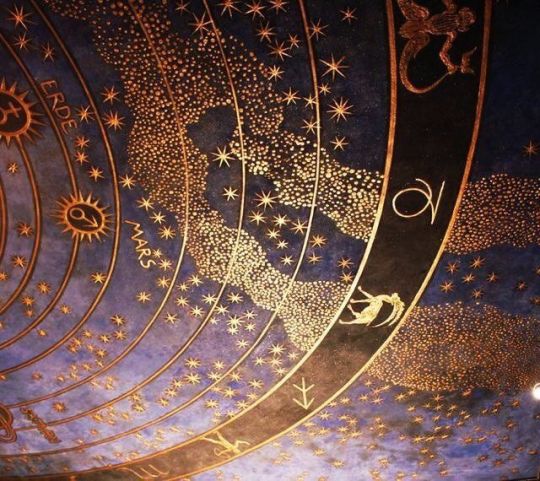
https://www.poetryfoundation.org/poems/56227/sonnet-147-my-love-is-as-a-fever-longing-still
This comes from Shakespeare's collection of 154 sonnets, released in 1609. (I couldn't make a blog about sonnets without including Shakespeare)
'modern' sonnet
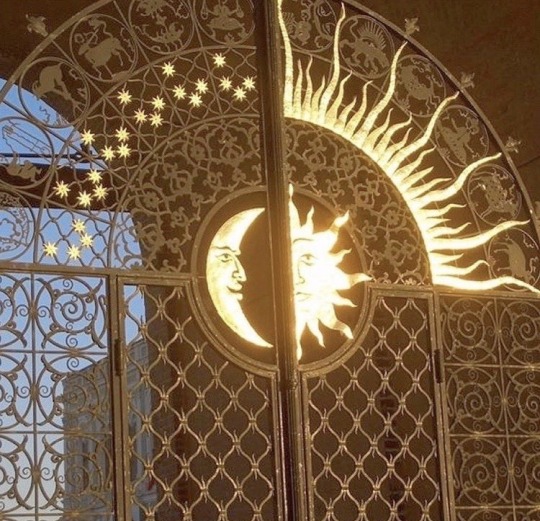
https://www.poetryfoundation.org/poems/49236/one-hundred-love-sonnets-xvii
This comes from poet Pablo Neruda, a chilean poet who released a collection of 100 love sonnets, in 1959.
0 notes
Text
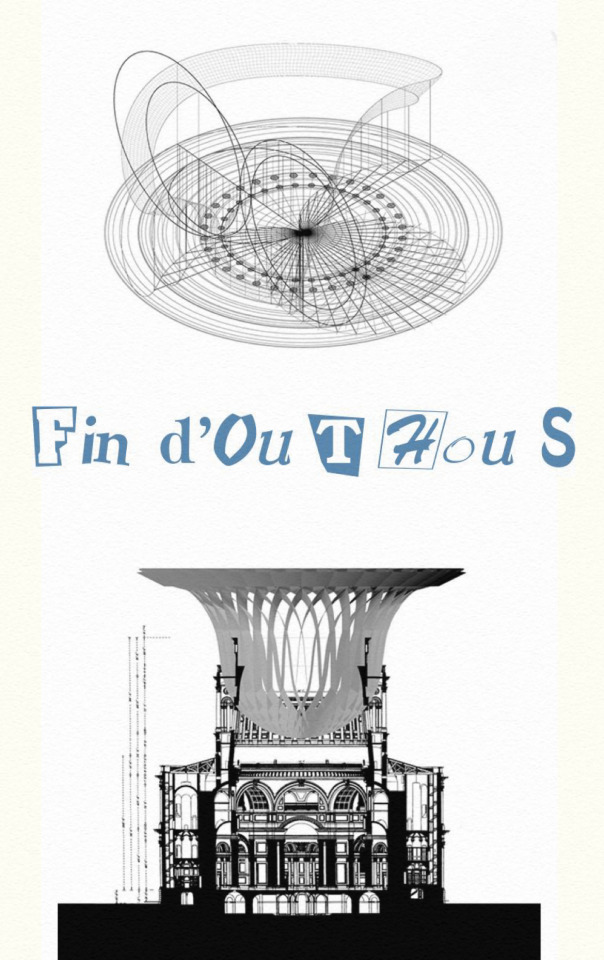
As the month of August passes one can take heart in the ability of the culture entertained by architecture.
Fin d’Ou T Hou S: A REckoning in the HoUSe of Time
In the heart of BRiTAin, where the MeRiDiAN of GReENWiCH SLiCes the WoRLd into EaSt and WeST, we FiND OuRSeLVes at a peculiar JUNCtion. The venerated ZeRO PoiNT, once a SYMbol of UnIversAL ORDER, now STanDS at the CROssroads of tradition and turmoil. This is not mere geOGraPHy; it is the SHaTTeRinG of abSOLuTes, a challenge to the OPeRAtiVe TRUTHS that have long guided our UNDERstANdiNG of the UNIVeRSE.
Sir Christopher Wren’s CATHeDRaLs, towering over the LaND like guardians of the past, seem to waver under the weight of these new queSTiONS. The thinkers, those who dare to see beyond the CONfines of the pReSeNT, are MoUnTiNG a quiet REVOlution, chALLeNging the veRY foundatIONs of what we have KNOWN. They WHiSPeR of a Fin d’Ou T Hou S—a final moMeNT of TRanSition where the old FRamEs of REFeReNCe CRUMble, and we must forge a new path, unchained from the FaLSe certainty of the past.
This Fin d’Ou T Hou S is not just a place; it is a state of BEiNG, a recognition that the VaLue we seek cannot be found in the EXtrinsic or ARBitrARY. The old forms, the SKeLEtons of REaSON and TradiTiOn, are laid bare as we ReALiZe that the ARCHitecture of our world, like that of Wren’s CHURChes, must now be inTERnalized. The causes have become the effects, and the ARchitectural OPeRa we inhabit must be understood as a living PROCESS, not a STATIC object.
Here, in this turbulent time, we must QUEStion whether the GReENWiCH MeRiDiaN reMAINS a legitimate ZeRO point, or if its STaTus as the center of the world’s time and space is as arbitrary as the capital letters that shape our sentences. The HeART of the matter lies in the reLATions between TRaDiTION and TeRroR, between those who seek to preSERVE and those who seek to RE-inVent. Is this recalibration of our world an act of CReAtiON or DeSTruCtiON?
Fin d’Ou T Hou S invites us to abandon the comfort of the known, to step into the uncertainty of a world where the traditional LOGics no longer apply. It is a call to EMBRAce the iNTRinSiC, to understand that the TRUE value of our time lies not in the external markers we have constructed, but in the internal rhythms of our own processes.
As we navigate this world, we are asked to become new readers, ones who can see beyond the FACADe, who can engage with the text of our existence not as a FIxed narrative but as an ever-evolving symphony. Fin d’Ou T Hou S is not an end, but a BEGinning, an invitation to REinVENT the way we understand and inhabit our world.
So, as the world shifts and trembles, let us not cling to the old ARBITRariness of the past, but rather EMBRAce the potential of what we might CREATE. For in this Fin d’Ou T Hou S, we FiND not just the end of the old, but the birth of something new, something inTRINSIC, something that speaks to the core of what it means to be truly ALIVE in the house of time.
0 notes
Text

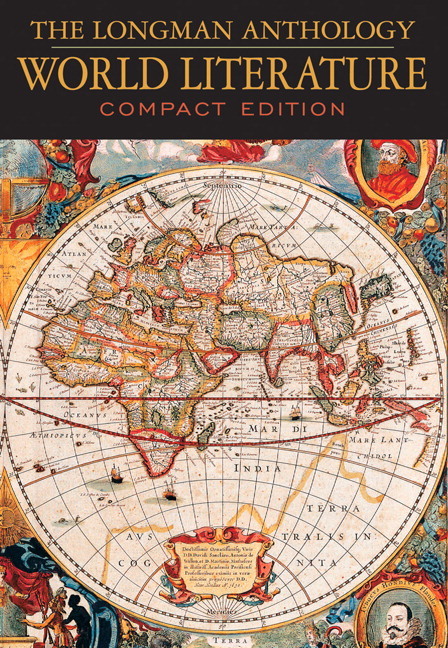
Longman Anthology of World Literature, The, Compact Edition
Overview The anthology includes epic and lyric poetry, drama, and prose narrative, with many complete works and a focus on the most influential pieces and authors from each region and time period. The texts are supplemented by contextual materials that help students understand the literary and historical eras from which these texts arose. Engaging introductions, scholarly annotations, maps, pronunciation guides, and illustrations developed by a distinguished editorial team provide a wealth of teachable materials that support and illuminate the selections. DescriptionThe Longman Anthology of World Literature, Compact Edition, presents a fresh and diverse range of the world’s great literature in a single volume that links past and present, East and West, and literary and cultural contexts.Featuring major works by literary masters from the ancient world through the twentieth century–Homer, Sappho, Sophocles, Confucius, Shikibu, Dante, Chaucer, Montaigne, Cervantes, Shakespeare, Voltaire, Goethe, Milton, Ghalib, Dostoevsky, Flaubert, Tolstoy, Yeats, Woolf, Joyce, Kafka, Eliot, Borges, Tagore–this concise anthology combines comprehensive coverage of key works of the Western literary tradition and the best core, enduring works of the literatures of China, Japan, India, the Middle East, Africa, and native Americas.
Features Compact! This brief anthology provides a complete survey of world literature in a single volume. Generous representation of fiction, drama, and poetry alike. Major prose works are included in their entirety, together with a wealth of poetry and drama. Examples include a verse translation of The Epic of Gilgamesh, Homer’s Odyssey, Dante’s Inferno, Shakespeare’s The Tempest, and Achebe’s Things Fall Apart, along with extensive, teachable selections from longer works such as The Tale of Genji, Don Quixote, and both parts of Goethe’s Faust. Compelling, highly regarded translations of classic texts. Selections include Richmond Lattimore’s translation of The Iliad, Robert Fagles’ translation of The Odyssey, Alan Sullivan and Tim Murphy’s translation of Beowulf; J.R.R. Tolkien’s translation of Sir Gawain and the Green Knight,Edward Seidensticker’s translation of Shikibu’s The Tale of Genji, Petrarch sonnets translated by Renaissance English poet Thomas Wyatt as well as by contemporary translators, and Constance Garnett’s translation of Chekhov’s ”The Lady with the Dog.” Two groupings of contextual materials illuminate the selections:Perspectives sections. These clusters gather short works on literary and cultural issues often associated with one or more major works. Examples include “Perspectives: Tyranny and Democracy” (with Greek Drama) and “Perspectives: Iberia, The Meeting of Three Worlds” (with the Poem of the Cid). Resonances pairings. These brief readings illuminate a particular author or work, often in the form of responses or analogues from other centuries or regions. Examples include poems by Alejandra Pizarnik (paired with Sappho), modern reuses of the Ramayana epic in a fundamentalist Hindu tract, and scenes from Aimé Césaire's A Tempest (paired with Shakespeare's The Tempest). Fresh and up-to-date introductions, scholarly annotations, timelines, regional maps, pronunciation guides, and notes. The surrounding materials that support and complement the selections are written by an editorial team whose members are all actively engaged in teaching and in current scholarship. Extensive illustration program. Emphasizing the artistic and cultural developments of each period, numerous illustrations–both black-and-white and color plates–are included, providing graphic examples and illustrations of literary and helping figures and places come alive. Audio CD. Voices of World Literature audio CD includes spoken word and musical selections of important British literary texts that appear in The Longman Anthology of World Literature, Compact Edition. Penguin Program. In cooperation with our sister company, Penguin-Putnam, a selected Penguin work can be bundled with the anthology at no additional cost to students. See the options at www.pearsonhighered.com/penguin.
Table of Contents
https://www.pearson.com/us/higher-education/product/Damrosch-Longman-Anthology-of-World-Literature-The-Compact-Edition/9780321436900.html?tab=contents
https://www.pearson.com/us/higher-education/product/Damrosch-Longman-Anthology-of-World-Literature-The-Compact-Edition/9780321436900.html
1 note
·
View note
Text
The Thrill of Mystery: Suspenseful Movies and Web Series on OTT
The Thrill of Mystery: Exciting Series on OTT
Hey there, mystery enthusiasts! Are you ready to dive into the enigmatic world of suspenseful movies and web series on OTT platforms? Well, you’re in for a treat because we’re about to uncover some of the best series on OTT that will keep you on the edge of your seat.

Mystery: A Genre Full of Surprises
Mysteries are like puzzles waiting to be solved. They’re stories filled with secrets, unexpected twists, and heart-pounding suspense. Whether it’s a classic whodunit or a modern thriller, mystery series have a way of keeping us hooked until the very end.
The Evolution of Mystery
Mystery stories have evolved over time, offering diverse and captivating narratives. Let’s take a peek at their transformation:
1. Complex Characters
In the past, mystery series often featured detectives as the main characters. Today, you’ll find a rich tapestry of protagonists, including amateur sleuths, unlikely heroes, and even antiheroes.
2. Psychological Depth
The best series on OTT delve into the minds of both the detectives and the culprits. They explore the psychology behind crimes, making us question the thin line between good and evil.
3. Diverse Settings
Mysteries no longer stick to the traditional drawing rooms and foggy streets of London. They unfold in various settings, from small towns to bustling cities, offering a wide range of backdrops.
4. Technology and Crime
With the rise of technology, mysteries now involve cybercrimes, hacking, and digital investigations, reflecting the challenges of the modern world.
What to Watch on OTT: Must-See Mysteries
Now that we’ve talked about the evolution, let’s uncover some hidden gems on OTT:
1. “Sherlock” (2010–2017)
This modern adaptation of Sir Arthur Conan Doyle’s classic detective stories is a rollercoaster of brilliance and intrigue. Follow the genius detective Sherlock Holmes and his trusty friend Dr. John Watson as they solve complex cases in contemporary London.
2. “Mindhunter” (2017–2019)
Set in the late 1970s — early 1980s, this series delves into the FBI’s Behavioral Science Unit, where agents interview serial killers to understand their psychology. It’s a chilling exploration of the criminal mind.
3. “Broadchurch” (2013–2017)
This British series is a masterclass in storytelling. It follows detectives Alec Hardy and Ellie Miller as they investigate a small-town murder, unraveling the town’s secrets along the way.
4. “Stranger Things” (2016–Present)
While primarily known for its supernatural elements, this series is also a mystery at its core. A group of kids embarks on a quest to find their missing friend and uncover strange occurrences in their town.
Why Mysteries Matter
Mystery series make us think, question, and try to solve the puzzles alongside the characters. They remind us that the world is full of secrets waiting to be unveiled, and sometimes, the truth is stranger than fiction.
Wrapping Up
Mystery series on OTT platforms offer us the excitement of solving puzzles without leaving our living rooms. They challenge our minds, entertain our hearts, and leave us eagerly awaiting the next clue. So, if you’re in the mood for suspense, grab some popcorn, dim the lights, and start streaming these captivating mysteries.
FAQs
Are mystery series suitable for kids? Some mysteries are family-friendly, while others are more suited for older audiences. Always check the content rating to ensure it’s appropriate for your age group.
Do all mysteries involve crime? While many mysteries revolve around solving crimes, the genre is diverse. Mysteries can also explore puzzles, riddles, and enigmas that don’t necessarily involve criminal activities.
Are there mysteries with supernatural elements? Absolutely! Some mysteries incorporate supernatural or paranormal elements, adding an extra layer of intrigue and wonder.
Do I need to be a detective to enjoy mystery series?| Not at all! Mystery series are designed for everyone to enjoy. You can simply sit back, relax, and let the characters do the detective work while you unravel the mysteries from your couch.
Are there mystery series with strong female leads? Yes, many mystery series feature strong and dynamic female protagonists who take center stage in solving complex cases.
0 notes
Text
Anonymous asked: You’re one of the smartest and well-grounded defenders of conservatism I have read here but I’m curious how you would defend the British monarchy. What would you say to those critics who think the coronation of King Charles III and the monarchy in general is just a waste of time as its rituals are out-dated and therefore has no symbolic value? How will you and your family be celebrating the coronation of King Charles III?
Thank you for your kind words, however undeserved. I’ve already started celebrating the coronation. I was in London earlier in the week seeing family and friends and I was just taking in the magnificent royal pageantry makeover of central London. One of my gentlemen’s club is in Pall Mall (it feels weird to say that as a woman) and just walking down there up to Fortnum & Mason and Hatchards bookstore in and around Piccadilly and Green Park gave me goosebumps. I only wish I was there longer but alas I had to get back to Paris; but at least I bought some food and tea stash from Fortnum & Mason to bring back to friends.
I’ll be properly celebrating the coronation by hosting a ’street party’ on our French vineyard with my cousins and inviting some of the British expats and French neighbours to celebrate with lots of fine wine and champers in full flow. Like millions of others, my immediate family are doing their own thing to celebrate the coronation. Overall, it should be a great day. And historic too. I have a spring in my step even if the very next day I have the weight of work on my shoulders as I rush to the airport the very next day to step back on the punishing corporate treadmill.
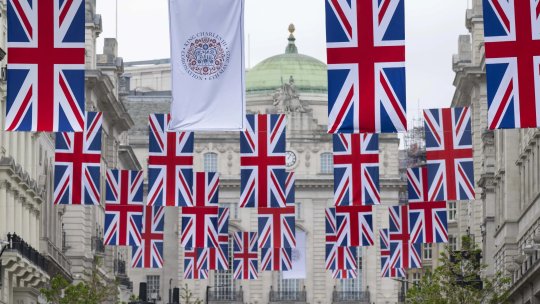
On the face of it, the British monarchy runs against the spirit of the times. Deference is dead, but royalty is built on a pantomime of archaic honourifics and frock-coated footmen. In an age of meritocracy, monarchy is rooted in the unjustifiable privilege of birth. Populism means that old elites are out, but the most conspicuous elite of all remains. Identity politics means that narratives are in, but the late queen kept her feelings under her collection of unfashionable hats. By rights, support for the crown should have crumbled under Elizabeth and especially under Charles. Instead, the monarchy has thrived. And it continues to thrive and thus maddening the bourgeois woke elites and perplexing race grifting decolonisation academics. And yet millions of Britons and many others around the world will tune in and celebrate the coronation of King Charles III. Unless your head is firmly embedded in the pages of the Guardian newspaper, poll after poll has shown the majority of Britons have supported the monarchy as an institution and the republican movement in the UK is a joke. Clearly the majority of Britons don’t see the monarchy as a waste of time or its rituals out-dated and nor having symbolic value? Why is that?
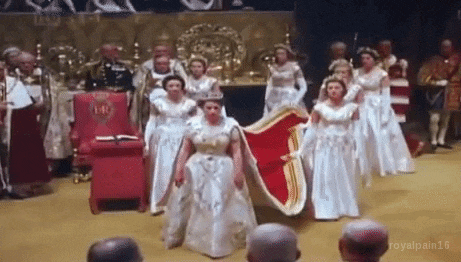
Most of the criticisms of monarchy are no longer valid today, if they were ever valid. These criticisms are usually some variation of two ideas. Firstly, the monarch may wield absolute power arbitrarily without any sort of check, thus ruling as a tyrant. However, in present era, most monarchies rule within some sort of constitutional or traditional framework which constrains and institutionalises their powers. Even prior to this, monarchs faced significant constraints from various groups including religious institutions, aristocracies, the wealthy, and even commoners. Customs, which always shape social interactions, also served to restrain. Even monarchies that were absolute in theory were almost always constrained in practice.
In Britain even the monarch was subject to the law from medieval times. As Sir Edward Coke put it in the famous 1610 Proclamations case, “the King hath no prerogative but that which the law of the land allows him”. If anyone doubts these issues are still relevant, the Supreme Court quoted these very words in its 2019 judgement on Boris Johnson’s prorogation of Parliament. And the pre-existing law referred to, that “common law of the land”, went back - both in legal myth and in the popular mind - to Anglo-Saxon times, the era of Athelstan and St Edward (whose crown King Charles will wear).
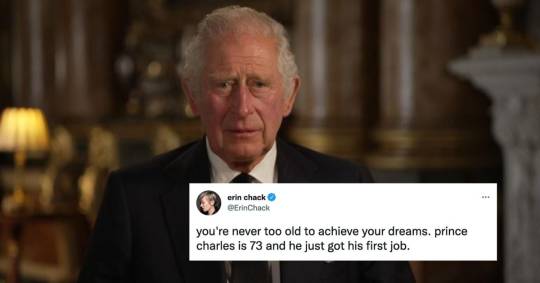
A second criticism is that even a good monarch may have an unworthy successor. However, today’s heirs are educated from birth for their future role and live in the full glare of the media their entire lives. More importantly, because they have literally been born to rule, they have constant, hands-on training on how to interact with people, politicians, and the media. This constrains bad behaviour, in theory. But it doesn’t always of course - just look at the antics of Prince Andrew and Prince Harry. Whatever your views of these people they are essentially peripheral figures to the central and singular importance of the monarch himself. The late Queen rarely put her foot wrong.
Even detractors of the monarchy had to admit the Queen herself conducted herself admirably. Christopher Hitchens, hardly a pro-monarchist but a staunch republican, was spot on when he shrewdly said, “the British monarchy doesn't depend entirely on glamour, as the long, long reign of Queen Elizabeth II continues to demonstrate. Her unflinching dutifulness and reliability have conferred something beyond charm upon the institution, associating it with stoicism and a certain integrity. Republicanism is infinitely more widespread than it was when she was first crowned, but it's very rare indeed to hear the Sovereign Lady herself being criticised, and even most anti-royalists hasten to express themselves admiringly where she is concerned.” Hitchens inadvertently highlighted an unseen truth about the longevity and relevance of the monarchy which is it has never been about the glamour or the gossip but about its symbolism which are deeply rooted in the ancient history of these lands.
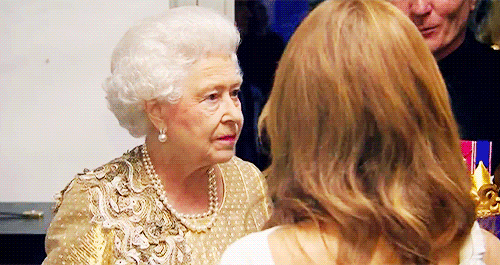
Critics may decry nostalgia for monarchy but they are missing the wider point which is the monarchy is at the beating heart of modern constitutional democracies. As in previous centuries, monarchy will continue to show itself to be an important and beneficial political institution wherever it still survives.
Look around and you’ll see that constitutional monarchies are undoubtedly the most popular form of royal leadership in the modern era, making up close to 70% of all monarchies. This situation allows for democratically elected governments to rule the country, while the monarch performs ceremonial duties. Most monarchs are hereditary of course but I would argue in republics like the US and France for instance one has a ‘republican monarchy’. The presidency has all the symbolic trappings of a monarch and plays that unifying role for the nation. As an aside it’s interesting to note that the French president, Emmanuel Macron, technically serves as a Co-Prince of Andorra - a fact I enjoy making my good French republican friends squirm in discomfort. But France remains resolutely a republic despite many other European countries being a constitutional monarchy.
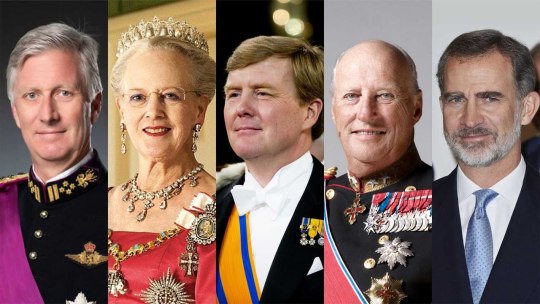
Monarchy has a long history in Europe, being the predominant form of government from the Middle Ages until the First World War. At the turn of the twentieth century every country in Europe was a monarchy with just three exceptions: France, Switzerland and San Marino. But by the start of the twenty-first century, most European countries had ceased to be monarchies, and three quarters of the member states of the European Union are now republics. That has led to a teleological assumption that in time most advanced democracies will become republics, as the highest form of democratic government.
But there still remains a stubborn group of countries in Western Europe which defy that assumption, and they include some of the most advanced democracies in the world. In the most recent Democracy Index compiled by the Economist Intelligence Unit, six out of the top ten democracies - and nine of the top 15 - in the world were monarchies. They include six European monarchies: Norway, Sweden, Denmark, the Netherlands, Luxembourg and the United Kingdom.
It remains a historical paradox. These monarchies have survived partly for geopolitical reasons, most of the other European monarchies having disappeared at the end of the First or Second World Wars. Their continuance has been accompanied by a steady diminution in their political power, which has shrunk almost to zero, and developing roles that support liberal democracy. What modern monarchies offer is non-partisan state headship set apart from the daily political struggle of executive government; the continuity of a family whose different generations attract the interest of all age groups; and disinterested support for civil society that is beyond the reach of partisan politics. These roles have evolved because monarchy depends ultimately on the support of the public, and is more accountable than people might think.
Understanding this paradox of an ancient hereditary institution surviving as a central part of modern democracies is a key part of understanding why monarchies persist and will continue to exist.
I would argue though that even within the modern constitutional monarchy, the British monarchy uniquely stands out from all the other European ones such as Norway, Sweden, Denmark, Belgium, Netherlands, and Spain.
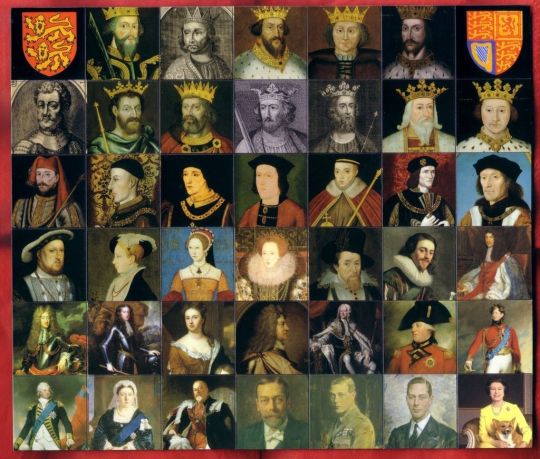
David Starkey, despite being curmudgeonly and provocative with his outsized remarks remains one of our finest medieval and royalist historians. He has always been particularly good at explaining the shifting tone of monarchical power in Britain. After the straightforward Anglo-Saxon model, English kings had to incorporate the Norman way of doing things, with its "chivalric virus"; we then see the Tudors appear with their imperialist vision, followed by the disastrous Stuart belief in the divine right of kings, which James I subscribed to intellectually, and which Charles I paid for with his head. After that we see Hanoverian mediocrity, followed by Victorian pomp, and Windsor flexibility – changing nationality and name as wars with Germany, their ancestral home, demanded.
From the beginning, Starkey argues, England’s monarchy has been unlike any other, divorced from imperial Roman traditions and based on an unspoken contract between king and people, and so reflecting a deep sense of patriotic exceptionalism. From Alfred, who effectively invented the idea of an English nation, to George III, who became the incarnation of bluff, beef-eating John Bull during the Napoleonic Wars, and on to George VI, the personification of quiet determination during Britain’s darkest and finest hours, successful kings have come to embody a wider spirit of national defiance. Perhaps that explains why, for all his faults, we remain fascinated with Henry VIII: he may have been a monster, but he was proudly, unapologetically, our monster. The Glorious Revolution of 1688 which really was one of this nation’s finest hours that did much to lay the seeds of our modern constitutional monarchy that we have today. Compared with the blood-soaked warrior kings of the past our recent monarchs have been personally colourless and politically irrelevant, except at key moments to unify a nation on its knees (against the imminent Nazi invasion during World War Two and the Blitz) and provide a point of continuity in the face of massive societal and economic change.
But does this history make Britain’s monarchy unique. Yes, it does. It’s not just the history but the rituals that define the monarchy in Britain that make it so unique today. Indeed far from being out-dated and empty of any symbolic value, the uniqueness of its rituals make the monarchy in Britain stand out because it’s precisely because of its Christian influenced rituals are embedded in the DNA of the monarchy tied to the history of these sceptred isles as Shakespeare put it.
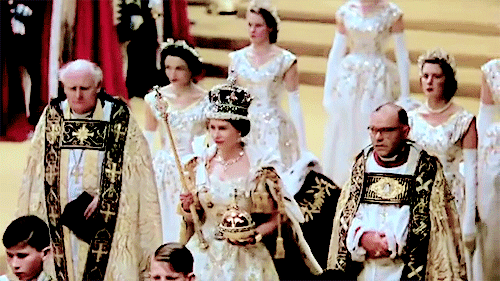
G.K. Chesterton wrote that “the opponents of ritual attack it on the ground that it becomes formal and hollow. So it does. But ritual only becomes formal and hollow where men are not sufficiently ritualistic.” What did he mean by that? A clue can be found in publication of The Black Book back in 1820 which was radical critique of the corruption and power of the English Establishment. It made this comment on royal ritual: “Pageantry and show, the parade of crowns and coronets, of gold keys, sticks, white wands and black rods; of ermine and lawn, maces and wigs, are ridiculous when men become enlightened, when they have learned that the real object of government is to confer the greatest happiness on the people at the least expense.” Forty years later, Lord Robert Cecil, the future third marquess of Salisbury, having watched Queen Victoria open parliament, wrote with scarcely more approval: “Some nations have a gift for ceremonial. No poverty of means or absence of splendour inhibits them from making any pageant in which they take part both real and impressive. Everybody falls naturally into his proper place, throws himself without effort into the spirit of the little drama he is enacting, and instinctively represses all appearance of constraint or distracted attention.”
As Sir David Cannadine, the great British historian, suggests, the elite's desire to temper the radical consequences of democracy was a crucial reason for their invention of so many royal rituals since the later nineteenth century. Indeed, for Cannadine, it is precisely the 'invention' and performance of royal rituals and Christian traditions, perfected at the end of the nineteenth and beginning of the twentieth century, which prevented the British monarchy from suffering the same fate as its Austrian, Prussian and German equivalents.
The Queen's coronation in 1953 was the first major international event to be broadcast on television, with an estimated 20.4 million viewers in the UK alone, 56% of the adult population. The coronation was the first media event seen by the majority of the population, and was for many their first experience of 'watching the box'. What people saw or were presented in the case of the British monarchy, were many references to its past by pointing out similarities between Elizabeth II and her famous predecessor Queen Victoria, by highlighting the longevity of rituals, or by implementing (seemingly old, but often invented) traditions in royal events like jubilees. In all of these cases, a diachronic genealogical link to the past is established in order to point to the institution's continuity, stability and anchorage in British history.
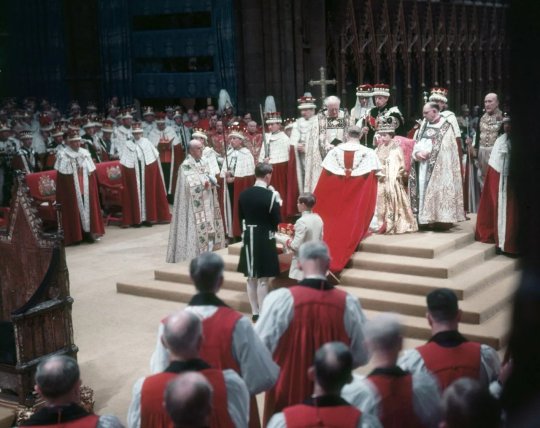
But Chesterton is onto something that has never really been talked about when we look what is behind the Christian symbology of rituals (real or invented).
The uncomfortable truth - for republicans and others of no Christian faith - is that Britain’s monarchy stands as the world’s only remaining state religious institution. The coronation is more than mainly a religious ceremony, as if that remaindered it for everyone not religious. It is a symbol among much else of the world’s oldest and only global narrative: God’s story. It goes all the way back to the crowning of Edgar by St. Dunstan in AD 973, drawing, it is said, an on even older Frankish ceremony. It takes place in Westminster Abbey, the national shrine. The oath is administered by the highest clergyman in the land. His office takes precedence even over the monarch himself. There is not just the formula “So help me God” repeated as does the U.S. president at the end of every secular statement; there is not simply an oath “upon my honour and integrity,” as in Turkey, or upon the honour of the nation, as in France.
The new queen in 1953 was asked, “Will you to the utmost of your power maintain the laws of God and the true profession of the gospel?” And she, and now as Charles will, pledged to do this, kneeling at the altar of the greatest temple in the land, hand upon Bible; “the most valuable thing this world affords,” the priest intones. And of which the priest then adds:
Here is wisdom. This is the royal law. These are the lively oracles of God.
Then, in the even more amazing rite of unction that stretches in one unbroken line from the anointing of Solomon by Zadok the priest and Nathan the prophet in the Hebrew Bible, the king is anointed with oil under a gold awning in a ceremony of the utmost holiness and away from the gaze of onlookers (it will not be televised). The archbishop hands him the symbols of his rule:
Receive this orb set under the cross, and remember that the whole world is subject to the power and empire of Christ our redeemer.
It is this that is the radioactive heart of Britain’s monarchy, and the secret of its strength. I think King Charles knows this. And so King Charles III will, I hope, defend faith in such a way that accounts for the universal and particular, all the while remaining committed to Christianity, the fabric of Britain’s history and heritage.
Both the monarchy and its rituals are together a protection against tyranny and a remedy for weakness. For, long forgotten by secular pundits, it models itself on the Christian belief that authority is what it is because it has been crucified; that only Christ the servant king is truly powerful, and because all are fallen, all can be restored only through him. The eternal Light that will outlive the rise and fall of worldly civilisations is just what the nations of the world need to hear.
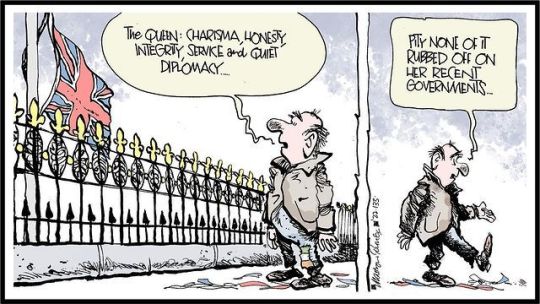
Coming back down to more earthly concerns, the British public look to the monarchy to represent continuity, stability and tradition, but also want it to be modern, to reflect modern values and be a focus for national identity, inclusive of creed, colour, and sexual orientation. The monarchy provides the poetry and the government provides the prose.
Writing in the 1860s, Walter Bagehot, The Economist’s greatest editor, noted that under Britain’s constitutional monarchy “A republic has insinuated itself beneath the folds of a monarchy.” The executive and legislative powers of government belonged to the cabinet and Parliament. The crown was the “dignified” part of the state, devoted to ceremony and myth-making. In an elitist age, Bagehot saw this as a disguise, a device to keep the masses happy while the select few got on with the job.
You do not need a monarchy to pull off the separation, obviously. Countries like Ireland rub along with a ceremonial president instead. He or she comes from the people and has, in theory, earned the honour. A dud or a rogue can be kicked out or prosecuted. To a degree, history lays down the choice - it would be comic to invent a monarchy from scratch.
However, constitutional monarchy has one advantage over figurehead presidencies that is the final reason behind our British monarchy’s surprising success: its mix of continuity and tradition, which even today is tinged with mystical vestiges of the healing royal touch. All political systems need to manage change and resolve conflicting interests peacefully and constructively. Systems that stagnate end up erupting; systems that race away leave large parts of society left behind and they erupt, too. Look at France, a country I live in now and I love, it had a revolution to overthrow a king only to end up with an emperor who made war on Europe, and left a country that has gone through as many republics as often I’ve changed my underwear in a working week.
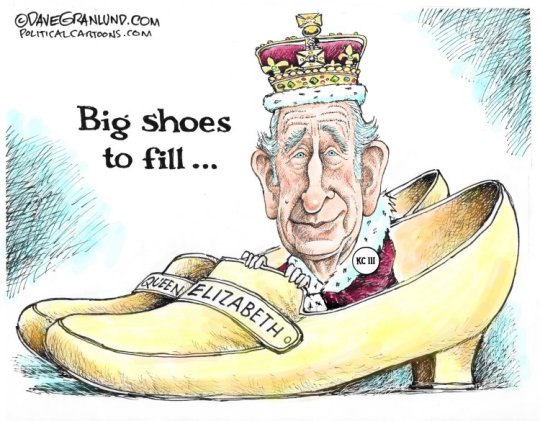
Under our late Queen Elizabeth II, Britain changed unrecognisably. Not only had it undergone social and technological change, like other Western democracies, but it was also eclipsed as a great power. More than once, most recently over Brexit, politics choked. During all this upheaval, the continuity that monarchy displays has been a moderating influence. George Orwell, no establishment stooge, called it an “escape-valve for dangerous emotions”, drawing patriotism away from politics, where love of country can rot into bigotry. Decaying empires are dangerous. Britain’s decline has been a lot less traumatic than it might have been.
Elizabeth’s sleight of hand was to renew the monarchy quietly all the while, and King Charles’s hardest task will be to renew it further. The prospect is daunting, but entirely possible. My money is on the monarchy.
God save the King!
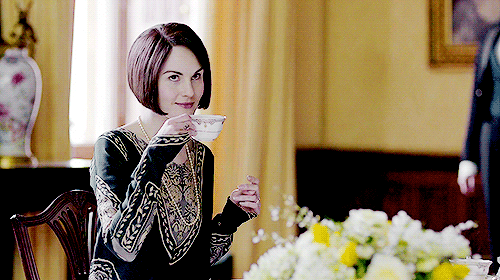
Thanks for your question.
#ask#question#british monarchy#monarchy#king charles III#queen elizabeth II#united kingdom#britain#royalty#nobility#history#tradition#custom#heritage#constitutional monarchy#europe#england#personal
66 notes
·
View notes
Text
Majesty ⊱⊰ Kazuha

A/N: I can't help but feel that there's an abundance of Kazuha fics in my releases lately... w-well, this is the third to the last for now HKHDJKAHDJAH I mean, it's GAA! And TyRanNY.
✤ Strolling in the mirage of Fischl, the samurai notices that the castle and its inhabitants aren't what they seem. Is he even in Immernachtreich, still?
✤ In other words, Kazuha crossing to a different universe entirely lmao, oh boy, he is not prepared.
Words: 2.8k

Immernachtreich's resplendency feels like it has come out of a fairytale. This is true, but stepping foot into it is a tale of its own.
Certainly, they've to commend the wonders of Fischl's imagination; for the poiesis of such august cadres is far from being an easy doing.
It is a world of its own, that much is true again.
If not for the objective at present, which is to search for the succeeding volumes of 'Hymn of the Holy Land' and complete the narrative, the samurai would've succumbed to his wanderlust.
To gallivant is in his nature, and in a place so unrealistically majestic, adventure calls out to him like the sea does to a sailor.
Unfortunately, there are things to prioritize, so he'd have to push down the desire to wander about the mirage.
He tries to pay no mind to the violet banners and gilded streamers as well as the otherworldly view beyond the balconies.
A difficult task, but he perseveres.
Though he must've forgotten that these mirages exist to be receptive to the works of the subconscious—or perhaps he hasn't forgotten at all. And simply thought that this enchanted place—which isn't his—does not listen to the mind of someone who isn't the mirage's owner.
One minute, he is following the group. Then a mere second later, after conveying the password to rescind the cerulean barrier and passing through it—he is alone.
The hall he has entered is entirely different. No longer are the floors of stone, but are now of plaster, perhaps even marble. Flags of rich heliotropes have been exchanged for the blackness of inks, whilst retaining the gilded accent.
A lack of abnormal architectures in need of repositioning in the form of puzzles is evident and everything appears as normal as it can possibly be.
Immediately, he grows alarmed. Where am I?
The disbelief kicks in twofold when he ambles about the area and comes upon humans, not sentient statues of ravenfolk. It grows when they—they look to be servants, a plenty bunch—bow as he passes by.
But, this is all washed away by awe when he halts by a balcony and sees the stretch of land beyond the horizon.
Mountains overlaid with clouds, silhouettes of faraway kingdoms, and blues of crystalline waters are there to be gazed at. And he does so with a hitching breath.
This is not the mirage. Is his first thought.
Wherever this may be, or if this is a separate mirage entirely.. then it is a work of art. Is his second.
Still enraptured by the sight that is most certainly not offered by Teyvat, he steps more into the space of the balcony, worries momentarily forgotten.
Ah, what a pretty landscape does.
But then the wind whispers in his ears, an arrival of a person in search of him, so he turns and raises his guard. For if he truly is separated from the group and Immernachtreich itself, then it's best that he remains vigilant.
He hears the rushing of footsteps and his limbs start to lower themselves into a stance-
But the voice that rings out is not that of a foe, but of a familiar friend.
“Sir Kazuha!”
“Xingqiu.” he greets, albeit his tone is skeptical.
One cannot be incorrect, the man standing before him is Xingqiu... but for some reason, he looks older than the last time he saw him...
His hair is longer and tied up in a ponytail, his posture is sharper and even his gait is more polished. A refined sight.
But the Irodori festival wasn't that long ago, wasn't it? How odd.
Not to mention, how he had been addressed as 'sir'. With this small sample, can he then assume that this place harbors the same people he know? Only of a different time?
It does not seem far-fetched. The only question that lingers now... where exactly is he?
“Her Majesty's looking for you, it's past her usual teatime!”
He blinks at the mention of a royal. Perhaps he's still in Immernachtreich after all? And there was simply a moment of... corporeality—and his friend had ascended the hierarchy from Princess to Queen.
With this presumption, his answer comes without delay.
“Her Majesty?” he blinks before reiterating, “Fischl?”
He decided not to refer to her by her real name in consideration that she goes by her second one. It's done out of concern, so he's taken aback when the visage of his friend morphs into nothing but dreadfulness.
The stare on him seems as if he's being judged over his lack of sagacity.
“Fish?” echoes Xingqiu, face pale, “What are you saying-!? If someone overhears your insult-!”
Kazuha is taken aback. Insult?
Has he mispronounced- ah, maybe she does go by Amy now?
He's a little befuddled and is just about to rectify his honest mistake when Xingqiu begins waving his hands about, obviously frantic.
It's a sight to see someone panic yet remain miraculously elegant under pressure.
“Oh, no matter. Let us be quick, her Majesty's caprice will be the doom of us all. She doesn't take kindly to tardiness, you out of everyone should know that best!”
He... should?
Then he has the reason to believe that he has some kind of counterpart in this place?
Still puzzled, the samurai follows his friend when he begins to hasten off somewhere. He is led through a series of meandering halls that depict the splendor of the palace. His awe can only last for a short while, though, for he still has the need to be vigilant.
“Thankfully, Noelle has already rolled in her favorite pastries and tea,” they stop in front of a pair of gilded doors, “With some stroke of luck, she's at least pacified... or so I hope.”
Xingqiu gives him another look over before flinching, eyebrows arching in confusion. “Also, what in heaven's name are you wearing?”
The stress on his words is enough to prompt for Kazuha to glance at himself. Nothing is out of the ordinary, he is still clad in his normal clothes.
“Is... there something wrong with my apparel?”
Although... if he does take into consideration the garments worn by the man in front of him, then he supposes that he does stick out like a sore thumb in comparison.
“Yes!” Xingqiu all but cries out, “You aren't wearing your tailored garments, if anything, you're dressed as if you're-... !”
The sudden pause is concerning—and so is the trepidation that rose on his face.
“Were you planning to eschew your duty as her Majesty's Knight and Servant?! Though you are not one to blame...”
Kazuha can only blink again, floundered, and left to pick up the gears and screws that his mind has dropped. Knight and servant? I am lost.
He did vow in the mirage that he was Fischl's bodyguard... the only answer he can construe now is that that vow has seemingly carried here.
“Sir Kazuha!” the voice makes him jolt.
Xingqiu sighs, disgruntled and worried. Running his gloved hands through his bangs, he gives his lips a quick nibble before settling on a decision.
Until now, the samurai can't begin to grasp why he's so distraught.
“This isn't good, you seem out of it. Perhaps you should go, I'll tell her Majesty that-”
They hear the opening of the doors a second too late.
“What's the fuss for, Chancellor?”
Xingqiu almost jumps out of his skin.
“Your Majesty!”
Kazuha falls silent. That...
The woman standing before them has hair of [c] and a pair of [c] eyes, far from the appearance he's expecting.
... Is not 'her Highness'.
In fact, he hasn't seen nor known of her at all until now. And simply standing in her presence is more than enough for him to deduce why his friend is rather agitated.
This monarch—she does not exude the aura of benevolence.
“You may leave.” her voice is as smooth as silk yet as stern and frigid as ice.
Kazuha understands the prickle of fear that's seen in the way Xingqiu, the 'Chancellor', bows at a perfect forty-five-degree angle and his inability to look at him in the eye.
All he hears is a silent bode of farewell and good luck until he's turning on his heel.
Wordlessly, the Queen—who is she?—enters the parlor. He takes it as the sign to follow, closing the ornate doors behind him and not moving in place.
The faintest of breezes that roll from the open window warns him of something—or, rather, of someone.
“Kaedehara,” he tenses, the tone used slowly goading him into summoning his sword if need be. “Where have you been? It is already quarter past three.”
He doesn't answer. How can he?
Or maybe he doesn't answer because he has a feeling that he shouldn't speak lest he wants his tongue cut off. The drive to have his blade in his hands is buried.
Unless the woman presents herself as a threat, he won't draw his sword. There is no need to raise a weapon when she hasn't raised one herself.
There are conflicts that can be resolved through conversations... and he hopes that this is one of those said conflicts.
Her back turned on him, the female royal stands at the center of the room, bathing under the peering sunshine. The ethereality of the sight belies her portentous mien.
“Were you compelled to play a role in the theater to amuse the children again? Or perhaps it was in your intention to abscond?” her words cut through like daggers, reminiscent of the Shogun. “I sure do hope it wasn't the latter, Kaedehara.”
As swift as a flown arrow, the Queen turns, [c]s staring into his pair of rubies. He feels his breath pause.
“Do not make me question your fealty.”
“I...”
What was he supposed to say?
The sunlight proceeds to claw its way through the interior of the parlor, and although it appears as a beautiful sight, he can't help but liken the nearing light to increasing peril.
With each elapsing second, there rouses a presage and thus, the desire to call forth his blade. Yet, when he actually tries to, it does not answer his call.
He's frozen in place when the Queen stalks closer like a predator would do to its prey. His mind urges him to run- but invisible shackles prevent him from doing so.
One step closer, one step backward.
His back hits the door and though he's tempted to angle his head away, he doesn't. If there is something he shouldn't do, it is to appear weak.
Fingers begin to trace his neck up to his jaw and he releases an involuntary shiver. It's cold. His eyes fly halfway down to a stern, simmering stare.
“What are you-!”
“Oh? 'You'?” the lady challenges.
Slow and steady, he sets his hand on the handles of the doors behind him, a mere second away from escaping. Yet, the breathtaking pair of [c]s do not fail to keep him in place.
“You're acting peculiar today, Kaedehara. For some reason, you are discourteous...” she grabs him by the chin, the smile on her face devilishly telling. “And easily flustered. Usually, you are so composed.”
She steps even closer, closer than he can possibly imagine and his breath is hitching. His hand twitches.
“Yet here, you stand...”
The Queen observes his face, the way his lips are pursed and the way he does not break the eye contact. It makes her simper, a shadow casting over her pretty visage.
“Daring to look into my eyes when you should be aware that you shouldn't.”
She must be aware, his mind concludes. That I am not who I appear to be.
That he must hastily look away as though to give the impression that he finds himself at fault—but he doesn't. He does not bow to oppressors.
In fact, he only blinks, and for a reason he doesn't know, that only seemed to amuse the lady more.
Her giggle is ostensibly cherubic, though he knows now that she isn't as angelic as she sounds. His heart begins to race when she closes the distance between them—be it of fear, alarm, or fluster, he has no idea.
He only hopes that she can't hear it and mistake the austere expression on his face to be a mere facade.
The other hand that lands on his hip nearly makes him jolt.
Leave. His mind demands.
“Who are you?” Kazuha whispers, slowly, wary that their lips may touch. Oddly enough, he finds himself staring at the ruby tint that glosses over the lady's plump, lower lip.
Is it make-up? From the sweets? Or is it blood?
The answer that he receives is an answer indeed, but it fails to satiate the curiosity within.
Escape.
He completely stops breathing when she presses against him, lips moving to whisper in his ear like a demon tempting a human.
“I am your Queen.”
Before you are ensnared by her thorns.
As if his hand has a mind of its own, he pushes the doors behind him, letting them splay open. Away from the bloodthorned royal, who only bestows a smile as he falls back and hits the ground.
Thud!
“Oomph-!”
Instantly, the place snaps away, flicking into the familiar appearance of the mirage he was at just earlier. When he blinks, no longer is the so-called Queen in front of him, nor are there the doors.
There is just a stoned wall.
“Hey, there he is! Kazuha!”
Rising from the floor, he pats any dirt and dust that may have clung to his clothes. As he's doing so, a collective sound of rushing steps come to his right.
Paimon looks and flies over him in concern, inquiring, “Where have you been? You disappeared on us so suddenly!”
Xinyan is quick to jump in on the query wagon, glancing at the owner of the mirage with a nod.
“Fischl- I mean, her Highness was about to dispatch her Knights to go and search for you.”
“Not like they could've done the job, we are far more competent, if having him here is not enough evidence,” responds Mona, the slight haughtiness of her tone unable to hide the relief seen on her face.
“Lady Megistus!” Oz reprimands, though he's only given a shrug.
They are quick to erupt in a tiny squabble, as is the usual shenanigan of the group of friends. Perhaps it is the fact that they've found the samurai that they allowed their guards to drop.
All but Lumine, who drags him to a nearby corner, befuddled at the way he followed along with little to no complaints and comments.
“Are you okay? You're a little red.”
I am? Kazuha wonders to himself. A second later, he realizes that he is feeling warmer than usual. His skin is burning.
Not even the most chill brush of the winds can ease the warmth on his face, to his genuine astonishment. But he supposes it's natural... given that it's just a literal minute ago that he has gone through some... dangerously fascinating things.
Lumine frowns and gives him a pat on the shoulder.
“You may be running a fever, you should go back to camp.”
A fever. It nearly makes him snicker.
Right, it must be a little peculiar for someone such as him, who is usually calm and collected, to suddenly appear so flustered and blushing. So, it's a possibility that's crossed off.
“I do suppose I need to clear my head,” he places a hand over his chest, finding it still racing. “Then if you'll excuse me.”
“I'll tell the others.” assures the Traveler, then they part ways.
Kazuha ambles through the halls of Immernachtreich for real this time around. The unexplained trip to a different palace has left him quite winded, so he does admit that he needs some time to cool off.
He doesn't have an answer for the things he's seen.
Is it a real place?
If so, then is it a different world?
Why has he crossed to it?
The cold wind brushing over his lips almost makes him stumble, immediately recalling the way he was held with adverse intimacy.
His heart is still racing.
[C]s repaints his mind.
Who is she?
The more he ponders over it, the more his head begins to pound- as though some kind of force is attempting to impede his thoughts from proceeding.
When he blinks, for a split second, he thinks he sees a blur of himself pass by in a rush. And when he turns—... !
“Your Majesty.”
A magical sight; it is as if the hall has split.
Halfway through, the violets of Immernachtreich have transitioned to the blacks of the same palace he had trespassed into. And standing far from reach is no one but a clone of himself, bowing to the same Queen of [c].
Once more, those [c]s meet his. Ruby lips stretched upward, her voice rings.
“Kaedehara.”
The void snaps as if it isn't there in the first place—and then he's staring into the usual hallway of the mirage.
Kazuha is at a loss for words. He has been blessed with the last image, yet he remains standing with no answers. By the time his friends have rendezvoused with him, he is still stunned.
He keeps the imageries a secret when they ask about his peculiar change. And when time is slow, he still thinks about the unearthly [c] majesty—a mystery only he will know.
Ah, what a serendipitous vacation, indeed.

a/n: lovely, lovely tension, mm i did quite enjoy writing that adhajhdajdahdjak talk about multiverse?? HDJDHASJDAA
but yes let's see here, theer's an obvious distinction between this kazuha and his tyranny!counterpart. the queen (go slay, mc) remarks that he's usually submissive, and well, doesn't that sum up tyranny!kazuha? always reverent and polite despite the queen's morally questionable actions.
i was tempted to throw lumine in the palace as well lmao bUT THAT WOULD GET TOO LONG-
@cherryflushz @e7t3 @scarlet-halos @lordbugs @nebulaera @annoying-and-upset @hanniejji @applepi1415 @tjjjrsj @azirajane @hey-comrade-hold-stil @limelightsuperhero @chloeloe @loptido @windyventi @nejibot @ganyuqrt @justrinnn @yasunamilk @alana5021 @uwu-dreams @yvechu @mininji
210 notes
·
View notes
Text
Despite what the common narrative surrounding gender would say, gender is messy. It doesn’t fit into neat little boxes with artistically written labels. Have you ever seen those organization influencers on social media? The ones where their food fits perfectly into their fridges or their sock drawers are organized by color and then by brand and then by the day of the week they’re to be worn? Yeah, gender is the opposite of that. And, you know what? I don’t think that’s a bad thing.
I was out on a drive with my mom today and got to talking with her about being trans and nonbinary. I’m currently reading a book on trans history, so I’ve been thinking about it more today than I usually do. The book in question is Before We Were Trans by Kit Heyam and, though I’m only about forty pages in so far, the introduction alone was enough to blow my mind. I honestly haven’t read as much queer literature as I’d like to, but this book and its source material in the back are going to help me change that.
In the introduction, Heyam quotes Jacob Tobia’s Sissy: A Coming-Of-Gender Story when talking about the current and most common narrative surrounding the trans experience and how narrow it is. Tobia "brilliantly likened this narrative to the game Mad Lib: a story with a pre-written skeleton format, where the teller fills in the specifics from a limited list of options." This narrative begins with a child "articulating their early, stable sense that they are 'in the wrong body'" and ends with full medical and social transition into a binary gender that they then live as in a "conventional, gender-conforming and heterosexual life." While this narrative does apply to many of the trans community—and their fitting it does not devalue or invalidate their transness—it's "inaccurate, indeed inadequate, for many more."
It's incredibly understandable that we want to find neat narratives for things to fit in—especially when we have to defend that thing against others—but the world of gender is anything but neat. So much of it is messy. And messy narratives need to be given attention too.
I got to talking about gender with my mom and how my own experiences don't fit into that Mad Lib narrative, as Tobia puts it. I didn't always know I wasn't cis. Looking back, I can see indications that I was nonbinary from early childhood, but for most of my life, I identified as a girl and then as a woman. I was uncomfortable with it, but I thought every woman was. I thought every woman wanted to confuse people with their gender. I thought every woman had the same thrill of adrenaline when being mistakenly called "sir." I identified as a woman because, to me, this was the experience of womanhood. My experience of womanhood was nonbinary, but I didn't see that at the time. At the time, I was a woman. Looking back, I struggle to find language to express this, though nonbinary woman might be the closest thing there is. I was both, at the time, but unaware of one because I didn’t even know it was an option for me. It was messy and it still continues to be.
I only got comfortable with womanhood when I realized I was nonbinary and decided to start socially transitioning. The rules no longer applied, so I could play with womanhood—and masculinity—as I wished without having the looming thought of gender conformity in the back of my mind. I didn't have to act a certain way or look a certain way because I wasn't a woman anymore.
My experience with being trans and nonbinary doesn't fit into a Mad Lib narrative or a neat little box or whatever you want to call it. I identify as trans masculine, though I very often present feminine and appear for all intents and purposes to be a cisgender woman. I didn't "always know." I didn't struggle as a teenager because I didn't realize there was a struggle to be had. I was a girl and a woman at one point, but also, I never was. I don't want to be a binary man the same way I don't want to be a binary woman. And, you know what? That's okay. It's okay to be a feminine trans man or a masculine trans woman. It's okay to not have always known. It’s okay to like certain gendered experiences that don’t match your gender identity. It's okay if you don't feel gender dysphoria or if you do or if you don't want to medically transition or if you do. It's okay for your gender narrative to be messy. And I think that's awesome.
2 notes
·
View notes
Text
When I was writing my university bachelor's degree thesis (that I'm still to defend) about Penny Dreadful as a modern adaptation of Frankenstein I noticed how the original novel's homoeroticism is realized by the series in an interesting way.
In the way he is presented, it seems to me that Victor secretly desires men, but thinks that only through creating a perfect one by himself he's allowed to touch other man's skin. His endeavour to pierce the veil between life and death is an excuse, since Victor from the series grew up lonely after the death of his mother and he searches for companionship, for someone who would love him unconditionally, like his mother used to. He believes he can find such love only in a person he creates himself, brings from the dead, and who would see him as his only friend, calm and obedient. Yet his first instinct is to make a man, not a woman, and a handsome man at that.
I can imagine both Rory Kinnear and Alex Price are not everybody's cup of tea (I do find them attractive, they are quite charismatic), but the way the original Creature and Proteus are shown makes them attractive. Proteus we see through Victor's eyes, when he is tending to his body before its even reanimated, when he sketches him (a sure sign of affection) and when he teaches him how to eat in a way that becomes seductive, because of how the camera lingers on his lips and then, in a closeup, on his fingers running down his long throat, immediately bringing to mind erotic imagery. Some may argue that Victor tries to emulate the relationship between his mother and himself taking the parental role and projecting onto Proteus the role of his childhood self, and as much as it is partially true, their relationship bears these marks of hidden desire on Victor's part from the start. The image at the end of the first episode when Proteus is born shows Victor trembling, teary-eyed, looking at the body, a torn and stitched back together, but human body, of a naked man. He's afraid, but not necessarily of the man, but of finally getting what he wanted, it's a fear resulting from excitement. Then the man is touching his face tenderly and Victor, still trembling, cannot stop himself from a little smile. Their faces are softly illuminated by the orange light of the gas lamp, creating an intimate atmosphere of a warm bedroom. Victor practically gasps hearing his own name smoken by Proteus. I doubt all of it was intentional in the way I read it, but it doesn't change the fact that the final scene can be easily interpreted this way.
Then the original Creature, with the violence surrounding his return, presents him as highly masculine, smart, powerful, a direct opposite to the delicate, clueless Proteus Victor could easily form into whatever he wanted. The Creature throughout the entire series is perceived as ugly by some and easily tolerated by others, making his ugliness purely subjective, since, despite his small deformities he remains strangely alluring with his gothic qualities (black long hair, black lips, white skin, yellow eyes, proportional features) of a dark brooding gentleman. With blood on his face he becomes vampire-like (vampires always a symbol of hidden desires and 'depraved' sexuality, the Creature and Victor becoming a mirror image of Vanessa and vampire Mina, both Creature's and Mina's monstrosity an indirect result of Victor's and Vanessa's desire towards having a same-sex companion). The Creature touches Victor's face, a callback to Proteus doing it, but the Creature is not gentle, he smears blood all over Victor's face (blood in vampire narratives was always a symbol for other bodily fluids, that's why it seems so sexy, it also gained another meaning in the 80s, due to the HIV epidemic, which no filmmaker can shake off if they tried, I could discuss it more with The Lost Boys, but no time for that right now).
The dynamic between Victor and the Creature is a reversal of Victor's budding relationship with Proteus, experience winning over innocence. Victor is under another man's rule, and it terrifies him, because it would force him into a position of having to admit his attraction, whereas as the one in control he could have still easily deny it. The Creature, with all his attributes, symbolizes carnal love, he's all 'body', where Proteus was virginal, pious love (to an extent). In one of the scenes where we see Proteus he looks up into the skylight at Victor's apartment and appears angelic, as if in a halo of white light.
It's revealed Victor never had a woman, and the series wants the viewer to believe it's because of his awkwardness and passion for science that consumed him, but his dedication to creating himself male companions instead of searching for a living female one is exactly what makes him seem more queer coded.
It's clear that the lack of paternal figure results in Victor quickly becoming close with older men he encounters (Sir Malcolm, Van Helsing), but it also puts him into a position where he's constantly surrounded by men, with whom he feels more at ease, and is intimidated by women. The rivalry between him and Ethan is that of siblings, until the moment when Ethan teaches him how to shoot a gun. It might be a stretch (it is a bit of a stretch, I admit), but a gun often, especially in horror, alongside a knife, represents manhood and masculine power. Victor allows Ethan to touch him and encourages him to show off with the gun, which is a scene all too familiar from many other movies where the role of Victor is reserved for a woman and the interaction is flirtatious (can't pull examples out of thin air, but if you saw over 1400 movies like me you know I'm not lying). All this adds to the general image of Victor.
The Creature and Victor, when they are on a walk, have a very revealing conversation in which the Creature points out how quick Victor was to grow attached to his more perfect man, and Victor doesn't deny it, he admits that he did in fact feel affection towards Proteus, although the meaning of it as the scorned past partner expressing jealousy over the love he didn't get while someone else did is largely subtext. When the Creature says that he's lonely, Victor answers 'I cannot love you' (paraphrase, because I can't find the exact quote right now) and the Creature, disillusioned, mocks him, 'I do not want what you cannot give' suggesting that Victor, by making himself a meek obedient man, is selfish, cruel, manipulating, and a coward, therefore could not have loved Proteus truly. Then again, Victor cannot bring himself to love his original Creature, because he's not the ideal man he envisioned and by then the Creature being too aware of his flaws of character. The Creature/Caliban/John Clare knows that Victor is 'monstrous', not just because he's someone who desecrates dead bodies, plays God and abandons his creation, but because of his queer desire. It's important that in the case of Penny Dreadful 'monstrosity' signifies many different things, literal (being a vampire werewolf, witch, and so on), metaphorical (bad deeds, like letting your son die a horrible death, cheating, killing etc.) and wholy subjective, merely condemned by ignorant society (Sembene's blackness, Brona's sex work, Lily's want to be equal or greater than men, Vanessa's want for sexual freedom, the Creature's ugliness, Angelique being transgender and other cases), so it's NOT that much of a stretch this time.
We also have the whole problem with Lily. Victor is so attached to Lily (who takes up both Elizabeth's and creature's bride parts in the novel) because he believes that only by possessing a good woman he'll be redeemed for his 'sinful' desires, but he's foolish to think that. This belief reduces a woman to a semi-maternal, semi-virginal angelic ideal with no sexual urges or agency, like virgin Mary. Lily is a true replacement for Victor's mother, and his imagined redemption. As long as she's similar to Proteus, in that she's not sexual, and pure like an angel. Yet Lily is not a woman in that sense. She is another of Victor's creatures, so she partially also takes over the role of the original Creature from the novel, a male. She's not an ideal of a Victorian obedient wife, she has power, or tries to have it, but power in the context of patriarchal society is masculine by nature. The moment she drops her pretenses of a weak delicate wife-like girl Victor does not want her like this. He doesn't want a woman that is sexually liberated, because he doesn't like women in this way, and yet, by being similar to the first Creature (from Victor's perspective, from hers John Clare is similar to Victor-a man, I could delve into Brona's sexuality, but later, this thing is already way longer than I intended) she's 'the man' he wanted.
There is also Henry. Henry Jekyll takes the role of his namesake in the novel, Henry Clerval, Victor's closest friend, and a character most often cited to have homoerotic tension with Victor. It's true that some of the eroticism might be accidental, stemming from the prevalence of homosocial interactions in 'Frankenstein' which in turn is a result of misogynistic nature of 19th century Genevian society and in-novel universe reflecting it, but like I mentioned before, it still feeds into the queer reading of the text and translates beautifully into Jekyll and Victor being both extremely misogynistic towards Lily and their mutual homoerotic tension. In the scenes where Henry purposes his plan to Victor he practically seductively purrs it into his ear, Lily becomes merely a female buffer that allows for that interaction, a female presence which is an excuse for male closeness (here I have a couple of examples actually: Dead Ringers, Sir Gawain and the Green Knight, Scream (in a roundabout way, through murder) and a couple others, but that deserves its own article). I won't even mention more references to the novel, because that's a lot already.
Penny Dreadful, although I believe largely unintentionally, expands on what is already there through the changes it introduces in relation to the novel's plot. I have nothing else smart to say, I just think it's worth considering.
*I use the word 'queer', because that's the umbrella term we use in academic writing for years now and even our lgbt+ group at university is called 'queer', so don't come at me with stupid takes
84 notes
·
View notes